Here are my favorite poems by Emily Dickinson categorized:
- Short poems by Emily Dickinson
- Short poems about love by Emily Dickinson
- Famous poems on death by Emily Dickinson
So if you want the best poems by Emily Dickinson, then you’re in the right place.
Let’s jump right in!
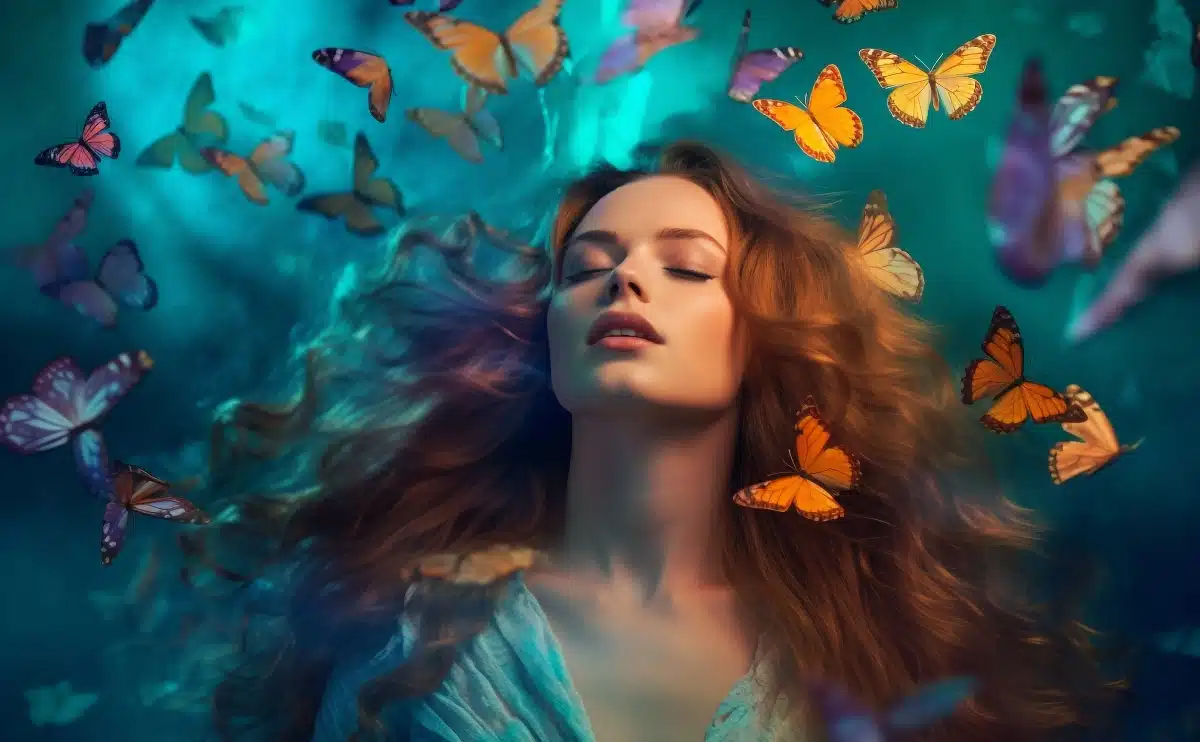
Best Poems by Emily Dickinson
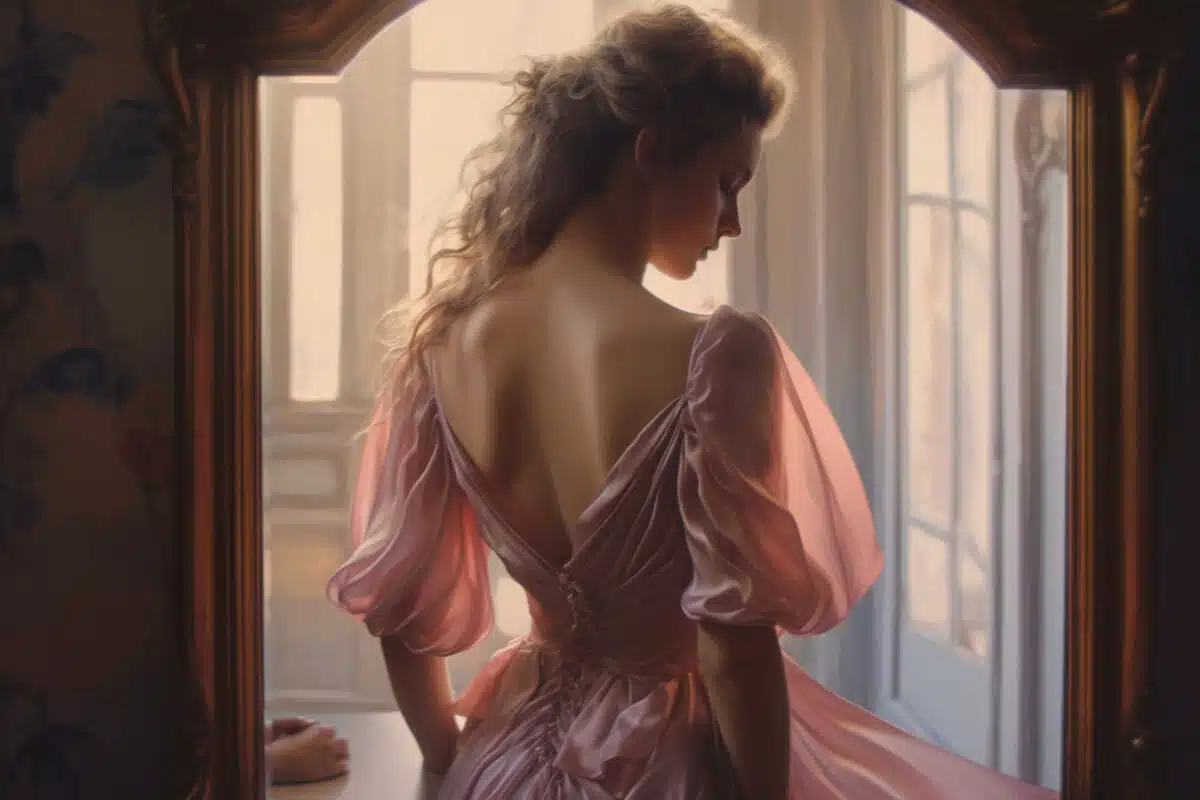
Emily Dickinson, the enigmatic poet of the 19th century, has left a wealth of literary treasures that continue to fascinate readers to this day.
Her poems, like kaleidoscopic fragments of emotions and observations, have been meticulously categorized to uncover the depths of her poetic genius.
From the ethereal musings on nature and spirituality to the introspective explorations of love and mortality, Dickinson’s verses have a way of resonating with the human soul.
Prepare yourself for a journey through her poetic world, where each category reveals a new aspect of her profound insights.
Let us delve into these thoughtfully selected pieces and discover why Emily Dickinson remains an enduring figure in the realm of poetry.
Let’s get to it!
My #1 Favorite Poem by Emily Dickinson
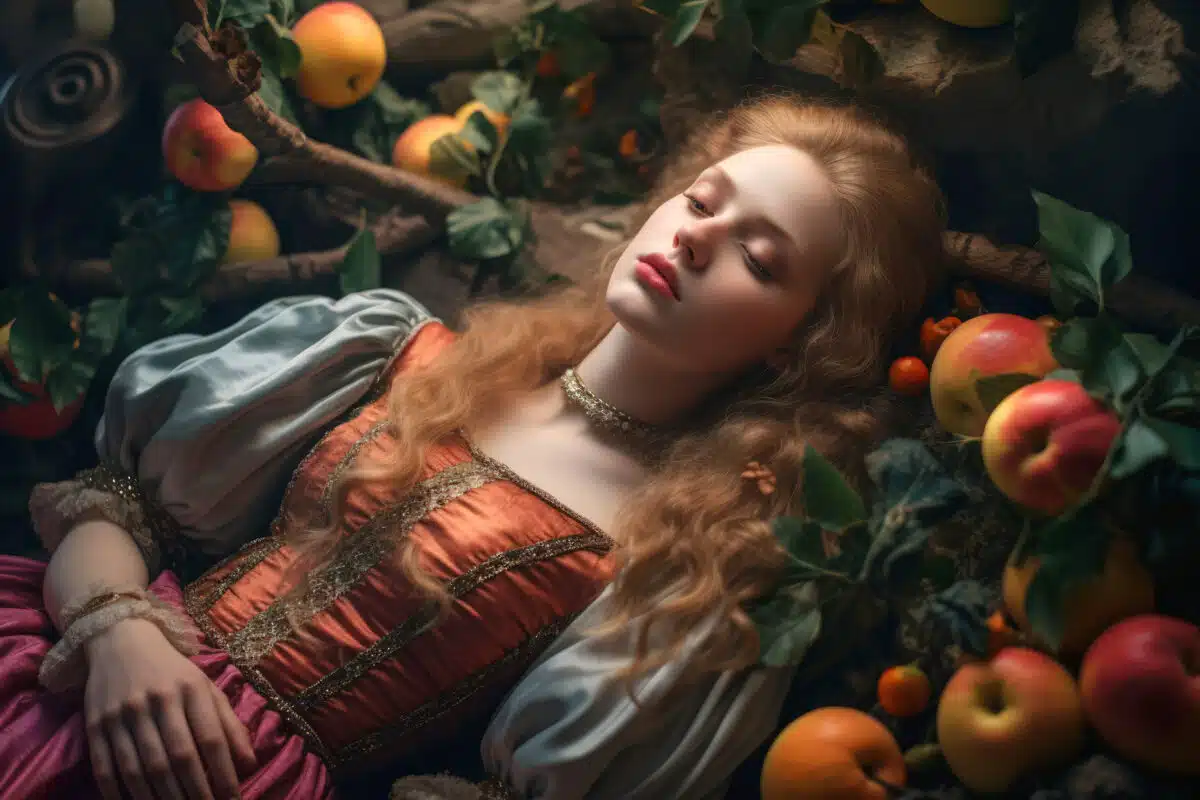
“Forbidden Fruit” by Emily Dickinson
Heaven is what I cannot reach!
The apple on the tree,
Provided it do hopeless hang,
That ‘heaven’ is, to me.
The color on the cruising cloud,
The interdicted ground
Behind the hill, the house behind, —
There Paradise is found!
Why Is “Forbidden Fruit” My Favorite Poem by Emily Dickinson
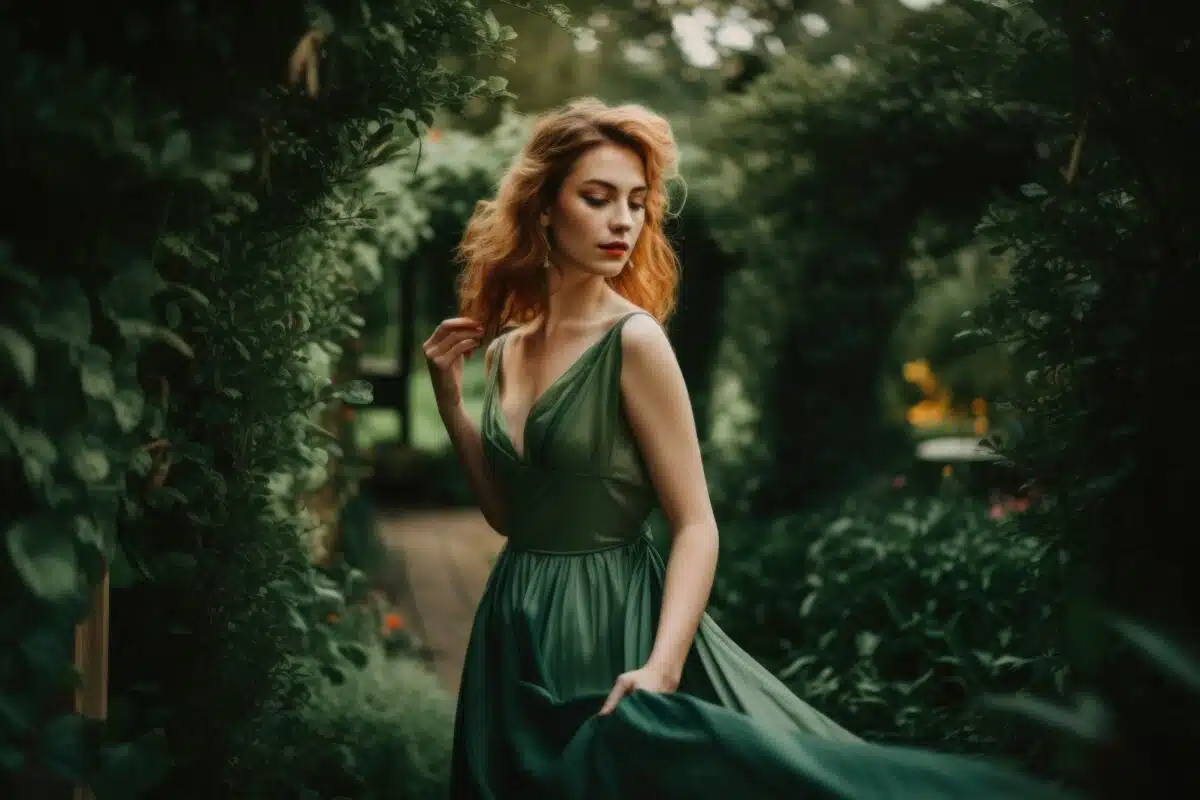
Dickinson’s “Forbidden Fruit” exemplifies her poetic brilliance by juxtaposing religious and worldly themes, proving her status as one of history’s most renowned geniuses in poetry.
I have always held great admiration for Emily Dickinson, both as a poet and as a woman because through her works, she demonstrates that women have always possessed wisdom, inner strength, and freedom.
The poem “Forbidden Fruit” skillfully employs the power of juxtaposition to convey strong themes of carnal longing and worldly desires, while also highlighting the inherent need for morality and goodness.
Yet, it is the poem’s concise yet impactful language that creates an aura of intrigue, leaving room for individual interpretation and inviting us to explore our own thoughts and emotions.
To me, this poem is an unforgettable piece of literature that will forever leave a lasting impression as I navigate my own longings and ambitions, while seeking my own heaven on earth.
Short Poems by Emily Dickinson
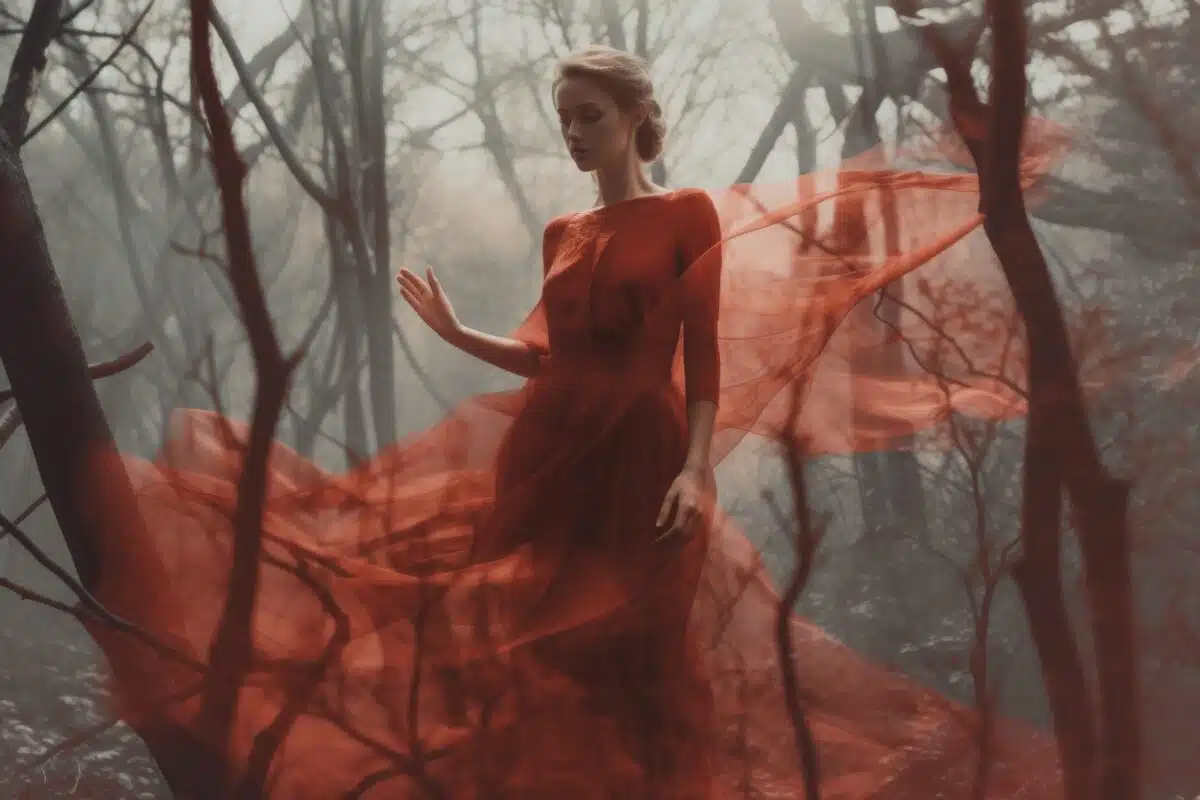
Welcome to the mesmerizing realm of Emily Dickinson’s short poems, where her words gracefully sway and spark the reader’s imagination.
Through her distinct style and insightful reflections, Dickinson skillfully crafts concise lines that delve into the intricacies of human emotions and the enigmatic nature of existence.
“Hope” by Emily Dickinson
Hope is the thing with feathers
That perches in the soul,
And sings the tune without the words,
And never stops at all,
And sweetest in the gale is heard;
And sore must be the storm
That could abash the little bird
That kept so many warm.
I ‘ve heard it in the chillest land,
And on the strangest sea;
Yet, never, in extremity,
It asked a crumb of me.
“I’m Nobody! Who Are You?” by Emily Dickinson
I’m nobody! Who are you?
Are you nobody, too?
Then there ‘s a pair of us — don’t tell!
They ‘d banish us, you know.
How dreary to be somebody!
How public, like a frog
To tell your name the livelong day
To an admiring bog!
“With A Flower” by Emily Dickinson
I hide myself within my flower,
That wearing on your breast,
You, unsuspecting, wear me too —
And angels know the rest.
I hide myself within my flower,
That, fading from your vase,
You, unsuspecting, feel for me
Almost a loneliness.
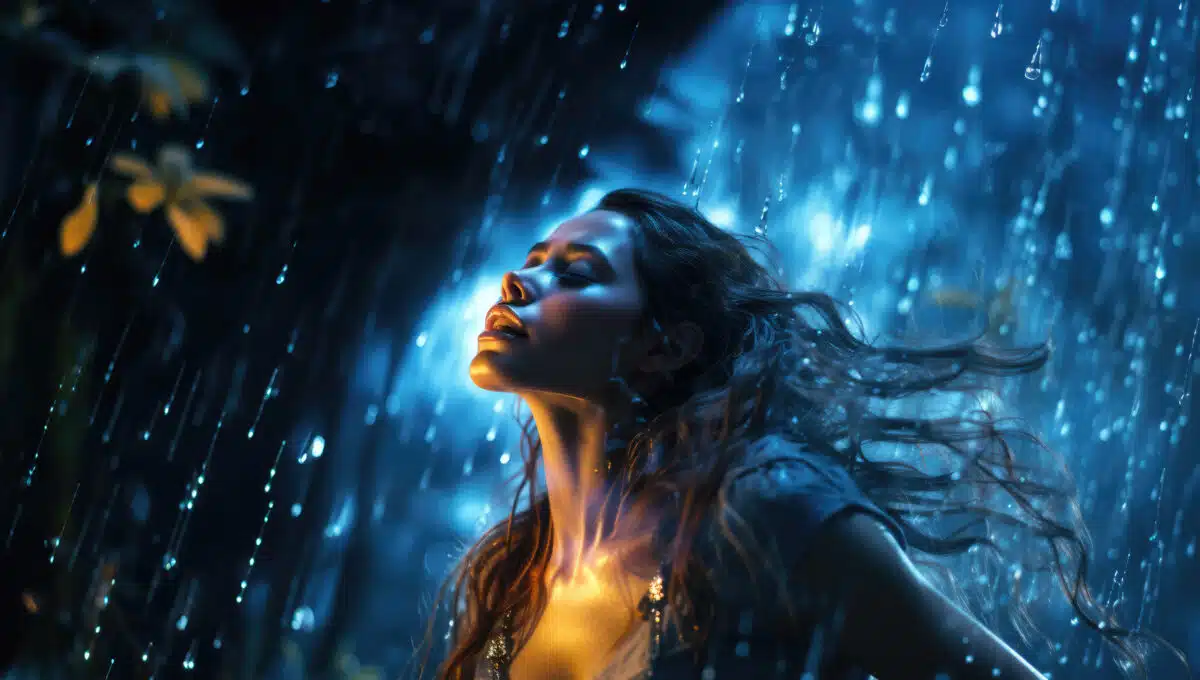
“Apotheosis” by Emily Dickinson
Come slowly, Eden!
Lips unused to thee,
Bashful, sip thy jasmines,
As the fainting bee,
Reaching late his flower,
Round her chamber hums,
Counts his nectars — enters,
And is lost in balms!
“A Snake” by Emily Dickinson
Sweet is the swamp with its secrets,
Until we meet a snake;
‘T is then we sigh for houses,
And our departure take
At that enthralling gallop
That only childhood knows.
A snake is summer’s treason,
And guile is where it goes.
“Friends” by Emily Dickinson
Are friends delight or pain?
Could bounty but remain
Riches were good.
But if they only stay
Bolder to fly away,
Riches are sad.
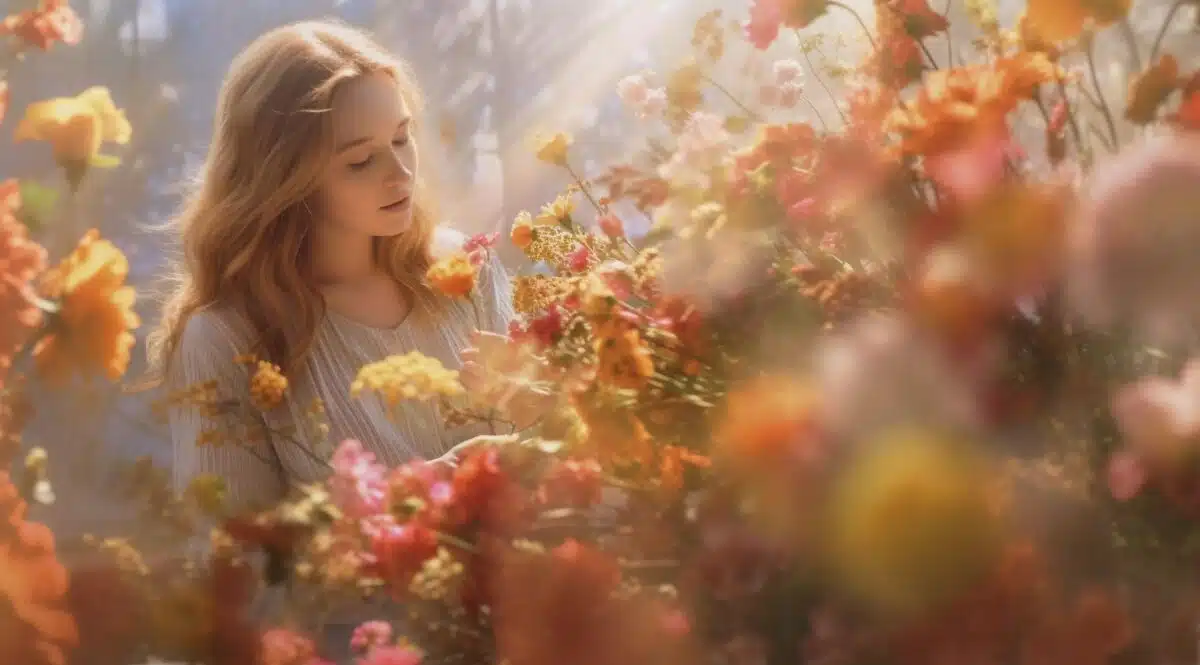
“If I Can Stop One Heart From Breaking” by Emily Dickinson
If I can stop one heart from breaking,
I shall not live in vain;
If I can ease one life the aching,
Or cool one pain,
Or help one fainting robin
Unto his nest again,
I shall not live in vain.
“A Word” by Emily Dickinson
A word is dead
When it is said,
Some say.
I say it just
Begins to live
That day.
“Afraid? Of Whom Am I Afraid?” by Emily Dickinson
Afraid? Of whom am I afraid?
Not death; for who is he?
The porter of my father’s lodge
As much abasheth me.
Of life? ‘T were odd I fear a thing
That comprehendeth me
In one or more existences
At Deity’s decree.
Of resurrection? Is the east
Afraid to trust the morn
With her fastidious forehead?
As soon impeach my crown!
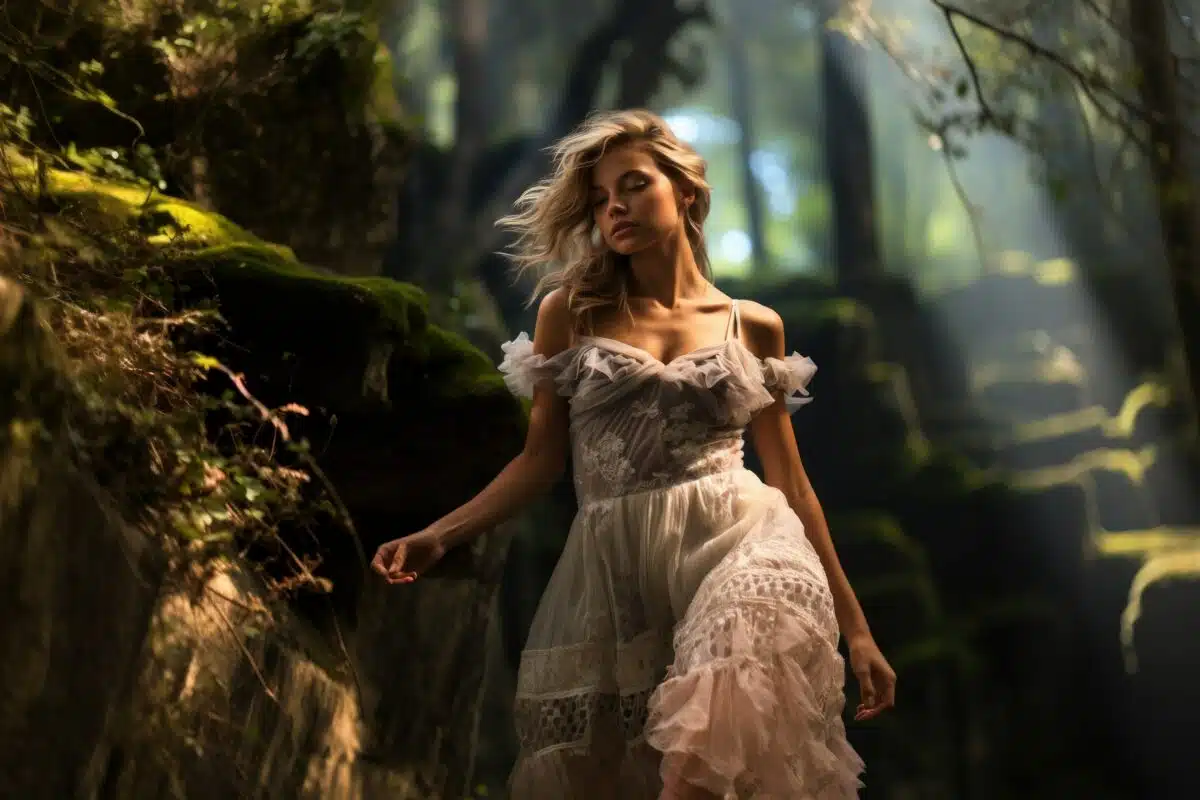
“Success” by Emily Dickinson
Success is counted sweetest
By those who ne’er succeed.
To comprehend a nectar
Requires sorest need.
Not one of all the purple host
Who took the flag to-day
Can tell the definition,
So clear, of victory,
As he, defeated, dying,
On whose forbidden ear
The distant strains of triumph
Break, agonized and clear!
“The Outlet” by Emily Dickinson
My river runs to thee:
Blue sea, wilt welcome me?
My river waits reply.
Oh sea, look graciously!
I’ll fetch thee brooks
From spotted nooks, —
Say, sea,
Take me!
“I Many Times Thought Peace Had Come” by Emily Dickinson
I many times thought peace had come,
When peace was far away;
As wrecked men deem they sight the land
At centre of the sea,
And struggle slacker, but to prove,
As hopelessly as I,
How many the fictitious shores
Before the harbor lie.
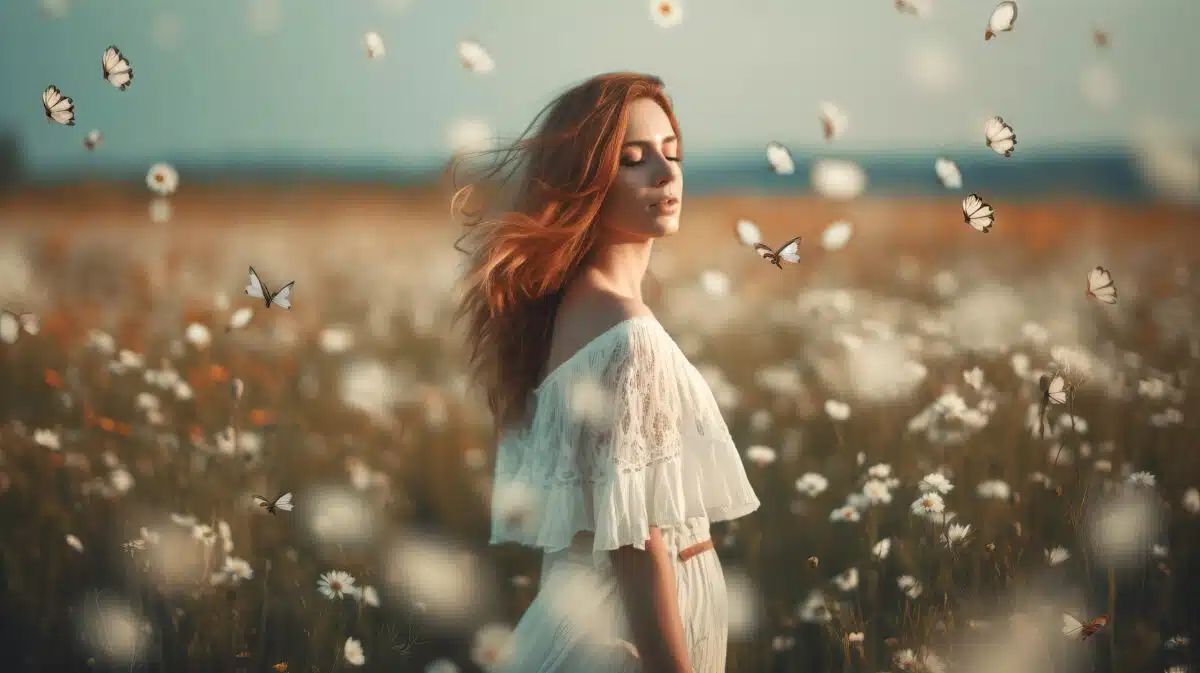
“Aspiration” by Emily Dickinson
We never know how high we are
Till we are called to rise;
And then, if we are true to plan,
Our statures touch the skies.
The heroism we recite
Would be a daily thing,
Did not ourselves the cubits warp
For fear to be a king.
“I Had No Time To Hate” by Emily Dickinson
I had no time to hate, because
The grave would hinder me,
And life was not so ample I
Could finish enmity.
Nor had I time to love; but since
Some industry must be,
The little toil of love, I thought,
Was large enough for me.
“Beclouded” by Emily Dickinson
The sky is low, the clouds are mean,
A travelling flake of snow
Across a barn or through a rut
Debates if it will go.
A narrow wind complains all day
How some one treated him;
Nature, like us, is sometimes caught
Without her diadem.
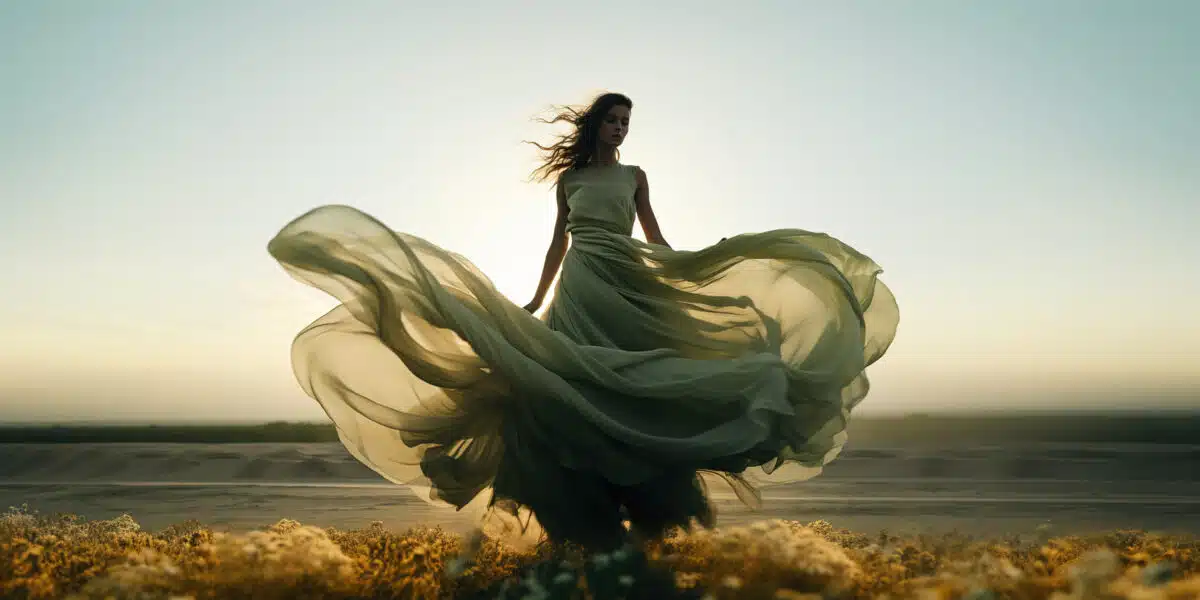
“I Died For Beauty, But Was Scarce” by Emily Dickinson
I died for beauty, but was scarce
Adjusted in the tomb,
When one who died for truth was lain
In an adjoining room.
He questioned softly why I failed?
“For beauty,” I replied.
“And I for truth, — the two are one;
We brethren are,” he said.
And so, as kinsmen met a night,
We talked between the rooms,
Until the moss had reached our lips,
And covered up our names.
“Contrast” by Emily Dickinson
A door just opened on a street —
I, lost, was passing by —
An instant’s width of warmth disclosed,
And wealth, and company.
The door as sudden shut, and I,
I, lost, was passing by, —
Lost doubly, but by contrast most,
Enlightening misery.
“I Never Lost As Much But Twice” by Emily Dickinson
I never lost as much but twice,
And that was in the sod;
Twice have I stood a beggar
Before the door of God!
Angels, twice descending,
Reimbursed my store.
Burglar, banker, father,
I am poor once more!
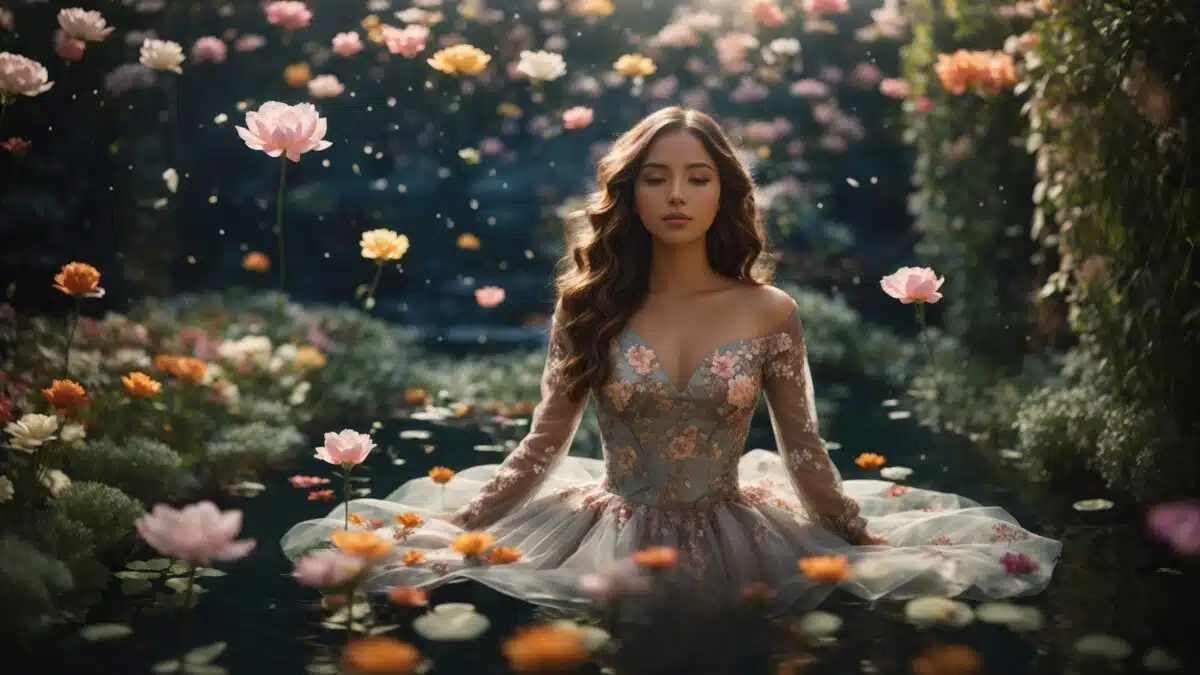
“Choice” by Emily Dickinson
Of all the souls that stand create
I have elected one.
When sense from spirit files away,
And subterfuge is done;
When that which is and that which was
Apart, intrinsic, stand,
And this brief tragedy of flesh
Is shifted like a sand;
When figures show their royal front
And mists are carved away, —
Behold the atom I preferred
To all the lists of clay!
“Exclusion” by Emily Dickinson
The soul selects her own society,
Then shuts the door;
On her divine majority
Obtrude no more.
Unmoved, she notes the chariot’s pausing
At her low gate;
Unmoved, an emperor is kneeling
Upon her mat.
I’ve known her from an ample nation
Choose one;
Then close the valves of her attention
Like stone.
“Surgeons Must Be Very Careful” by Emily Dickinson
Surgeons must be very careful
When they take the knife!
Underneath their fine incisions
Stirs the culprit, — Life!
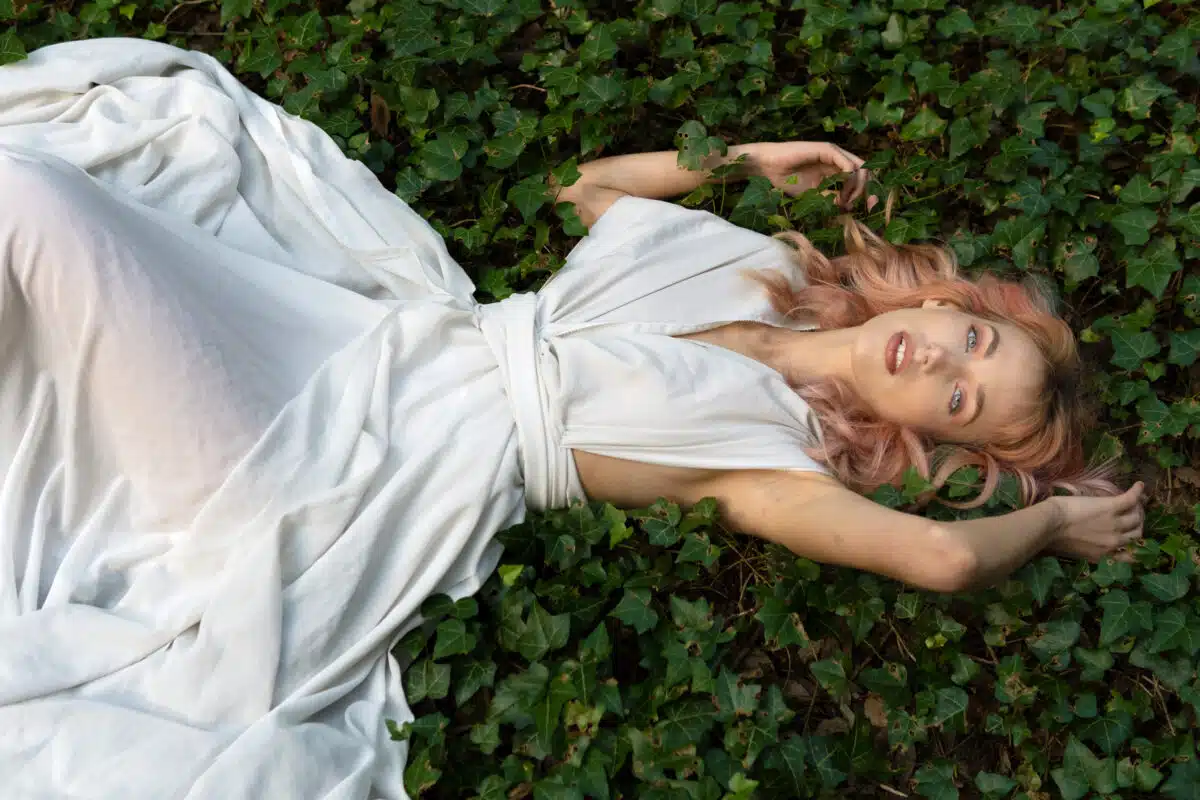
“Simplicity” by Emily Dickinson
How happy is the little stone
That rambles in the road alone,
And doesn’t care about careers,
And exigencies never fears;
Whose coat of elemental brown
A passing universe put on;
And independent as the sun,
Associates or glows alone,
Fulfilling absolute decree
In casual simplicity.
“I Never Saw a Moor” by Emily Dickinson
I never saw a moor,
I never saw the sea;
Yet know I how the heather looks,
And what a wave must be.
I never spoke with God,
Nor visited in heaven;
Yet certain am I of the spot
As if the chart were given.
“Compensation” by Emily Dickinson
For each ecstatic instant
We must an anguish pay
In keen and quivering ratio
To the ecstasy.
For each beloved hour
Sharp pittances of years,
Bitter contested farthings
And coffers heaped with tears.
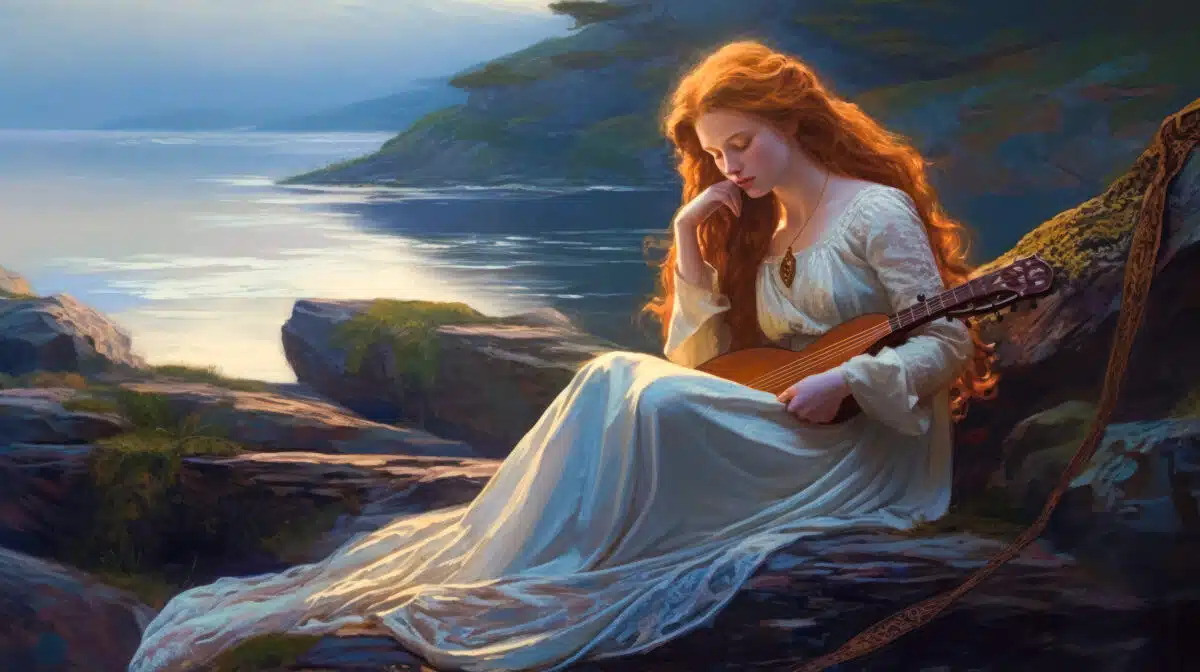
“Experience” by Emily Dickinson
I stepped from plank to plank
So slow and cautiously;
The stars about my head I felt,
About my feet the sea.
I knew not but the next
Would be my final inch, —
This gave me that precarious gait
Some call experience.
“The Duel” by Emily Dickinson
I took my power in my hand.
And went against the world;
‘T was not so much as David had,
But I was twice as bold.
I aimed my pebble, but myself
Was all the one that fell.
Was it Goliath was too large,
Or only I too small?
“A Shady Friend For Torrid Days” by Emily Dickinson
A shady friend for torrid days
Is easier to find
Than one of higher temperature
For frigid hour of mind.
The vane a little to the east
Scares muslin souls away;
If broadcloth breasts are firmer
Than those of organdy,
Who is to blame? The weaver?
Ah! the bewildering thread!
The tapestries of paradise
So notelessly are made!
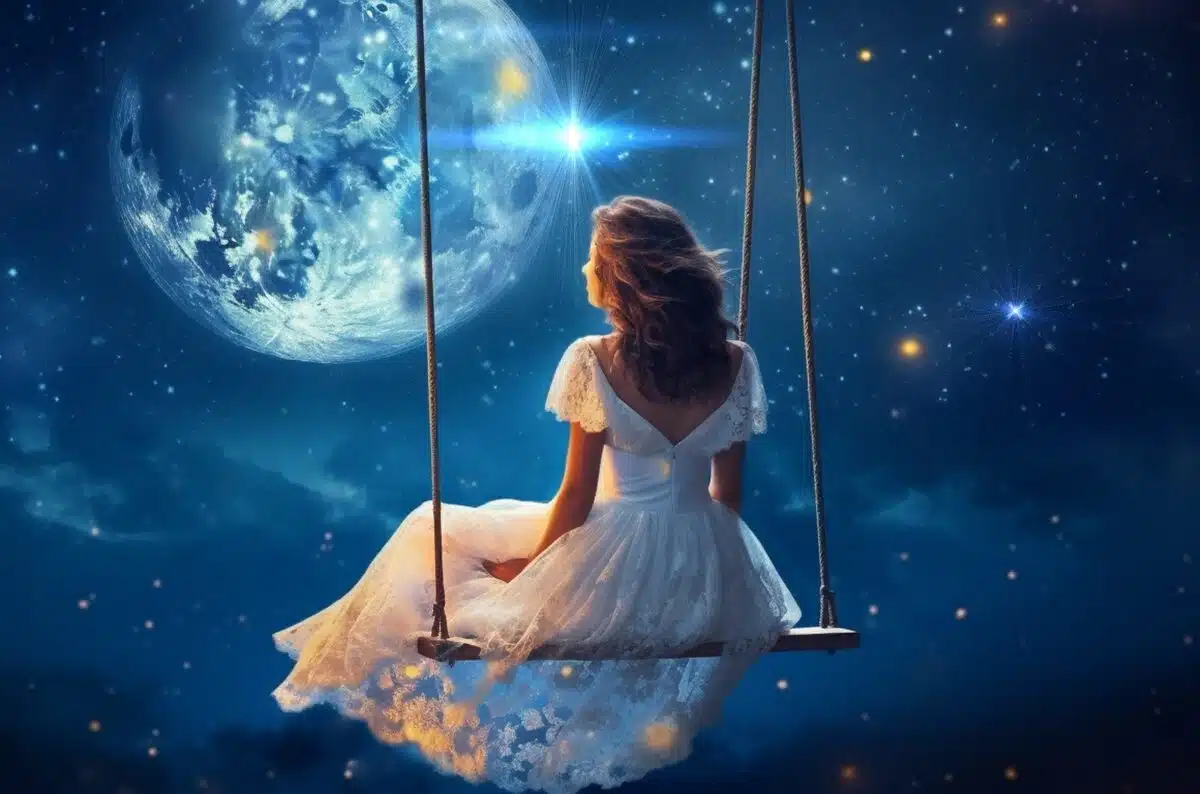
“When I Hoped I Feared” by Emily Dickinson
When I hoped I feared,
Since I hoped I dared;
Everywhere alone
As a church remain;
Spectre cannot harm,
Serpent cannot charm;
He deposes doom,
Who hath suffered him.
“Time’s Lesson” by Emily Dickinson
Mine enemy is growing old, —
I have at last revenge.
The palate of the hate departs;
If any would avenge, —
Let him be quick, the viand flits,
It is a faded meat.
Anger as soon as fed is dead;
‘T is starving makes it fat.
“Remorse” by Emily Dickinson
Remorse is memory awake,
Her companies astir, —
A presence of departed acts
At window and at door.
It’s past set down before the soul,
And lighted with a match,
Perusal to facilitate
Of its condensed despatch.
Remorse is cureless, — the disease
Not even God can heal;
For ‘t is his institution, —
The complement of hell.
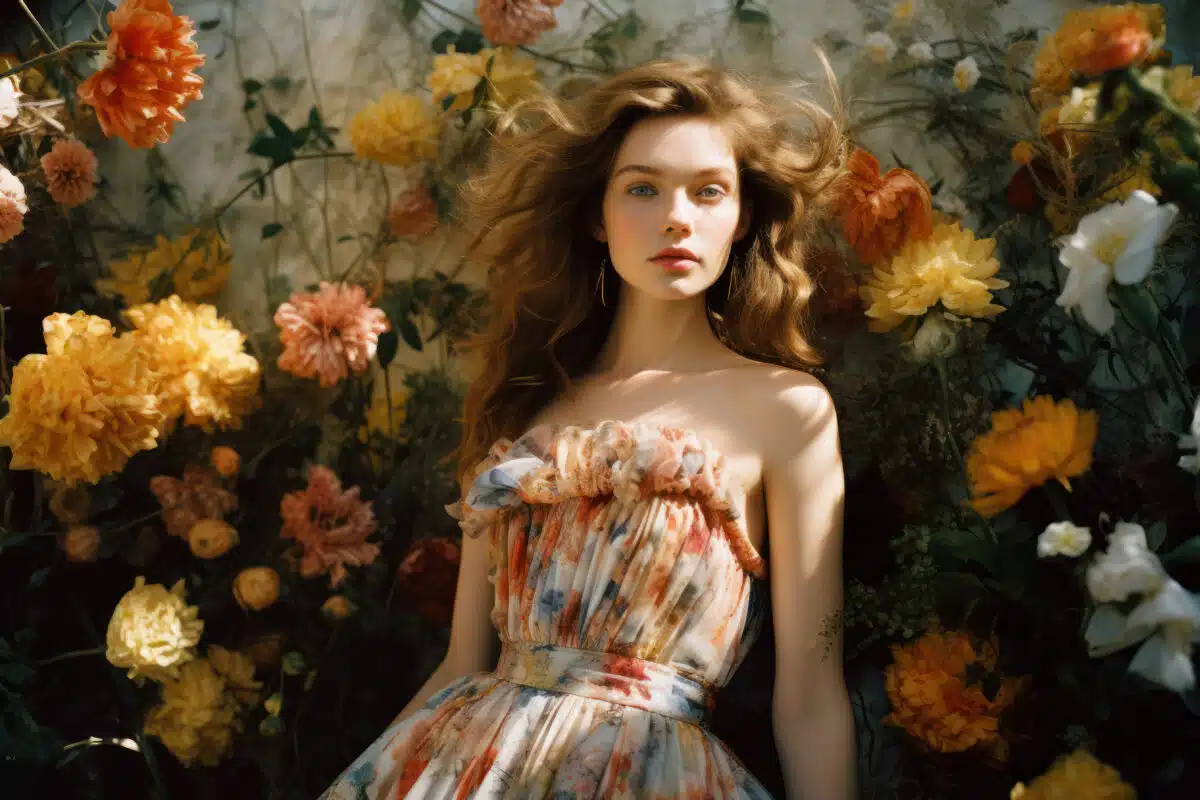
“The Shelter” by Emily Dickinson
The body grows outside, —
The more convenient way, —
That if the spirit like to hide,
Its temple stands alway
Ajar, secure, inviting;
It never did betray
The soul that asked its shelter
In timid honesty.
“Prayer” by Emily Dickinson
Prayer is the little implement
Through which men reach
Where presence is denied them.
They fling their speech
By means of it in God’s ear;
If then He hear,
This sums the apparatus
Comprised in prayer.
“I Gained It So” by Emily Dickinson
I gained it so,
By climbing slow,
By catching at the twigs that grow
Between the bliss and me.
It hung so high,
As well the sky
Attempt by strategy.
I said I gained it, —
This was all.
Look, how I clutch it,
Lest it fall,
And I a pauper go;
Unfitted by an instant’s grace
For the contented beggar’s face
I wore an hour ago.
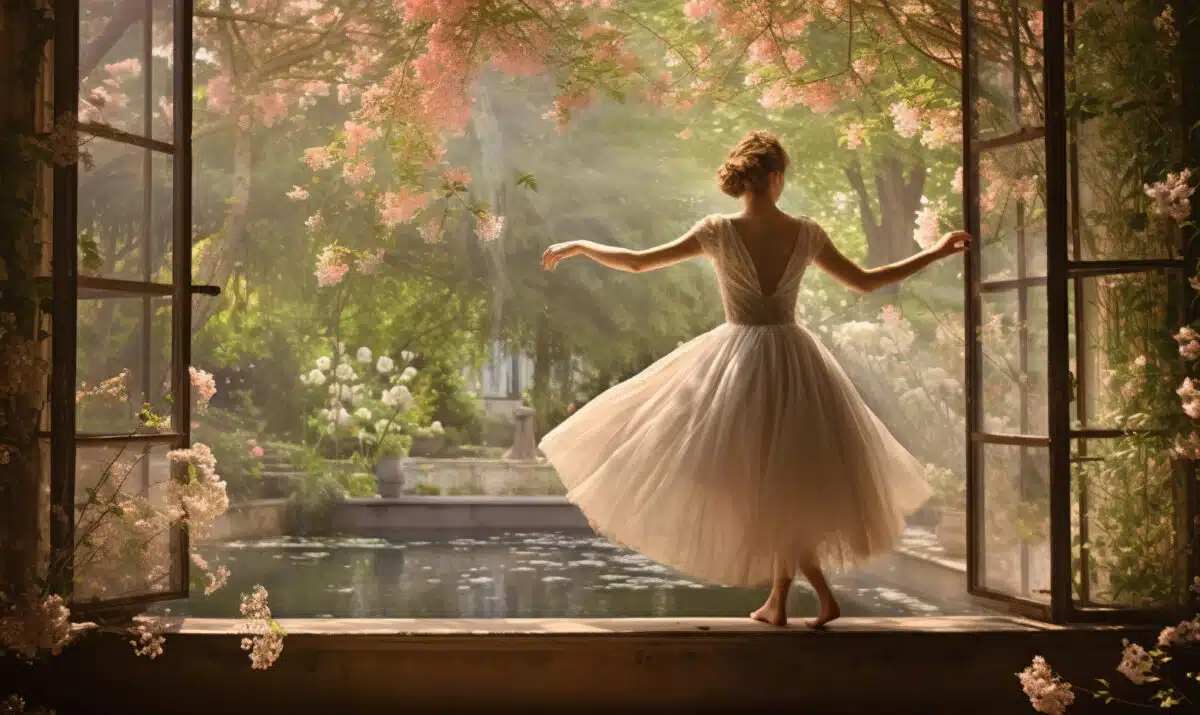
“Dreams” by Emily Dickinson
Let me not mar that perfect dream
By an auroral stain,
But so adjust my daily night
That it will come again.
“Who Has Not Found the Heaven Below” by Emily Dickinson
Who has not found the heaven below
Will fail of it above.
God’s residence is next to mine,
His furniture is love.
“Adrift! A Little Boat Adrift!” by Emily Dickinson
Adrift! A little boat adrift!
And night is coming down!
Will no one guide a little boat
Unto the nearest town?
So sailors say, on yesterday,
Just as the dusk was brown,
One little boat gave up its strife,
And gurgled down and down.
But angels say, on yesterday,
Just as the dawn was red,
One little boat o’erspent with gales
Retrimmed its masts, redecked its sails
Exultant, onward sped!
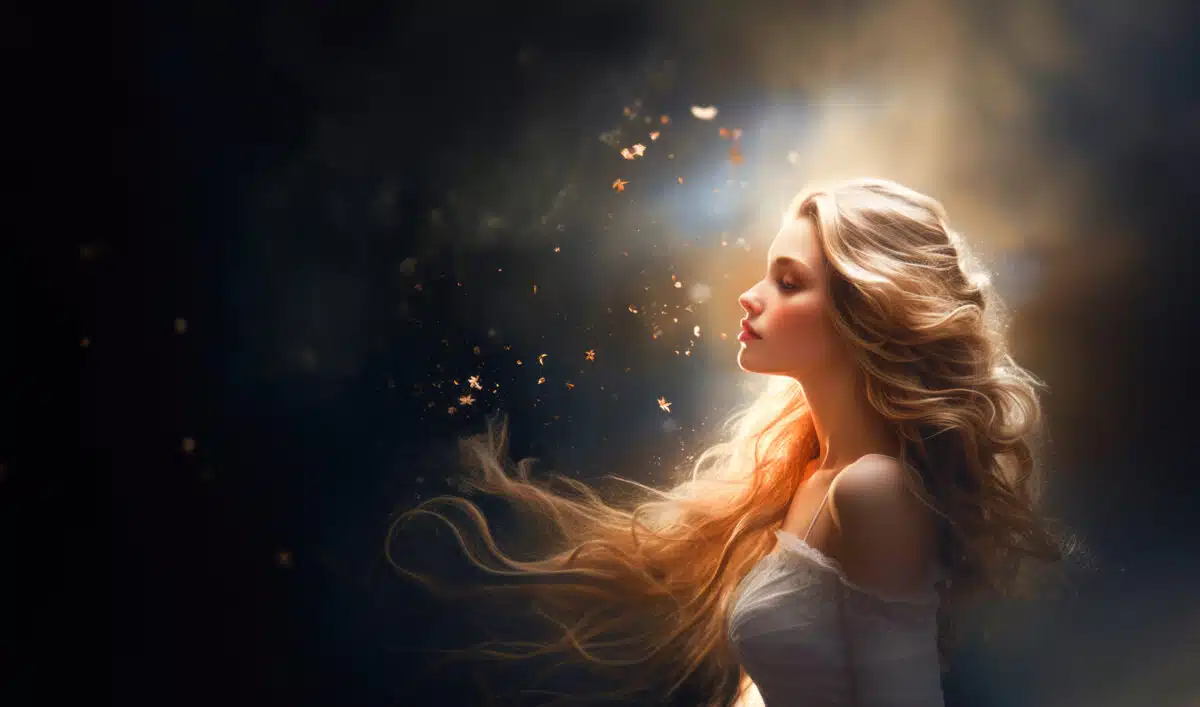
“Escape” by Emily Dickinson
I never hear the word “escape”
Without a quicker blood,
A sudden expectation,
A flying attitude.
I never hear of prisons broad
By soldiers battered down,
But I tug childish at my bars, —
Only to fail again!
“Poor Little Heart!” by Emily Dickinson
Poor little heart!
Did they forget thee?
Then dinna care! Then dinna care!
Proud little heart!
Did they forsake thee?
Be debonair! Be debonair!
Frail little heart!
I would not break thee:
Could’st credit me? Could’st credit me?
Gay little heart!
Like morning glory
Thou’ll wilted be; thou’ll wilted be!
“The Tulip” by Emily Dickinson
She slept beneath a tree
Remembered but by me.
I touched her cradle mute;
She recognized the foot,
Put on her carmine suit, —
And see!
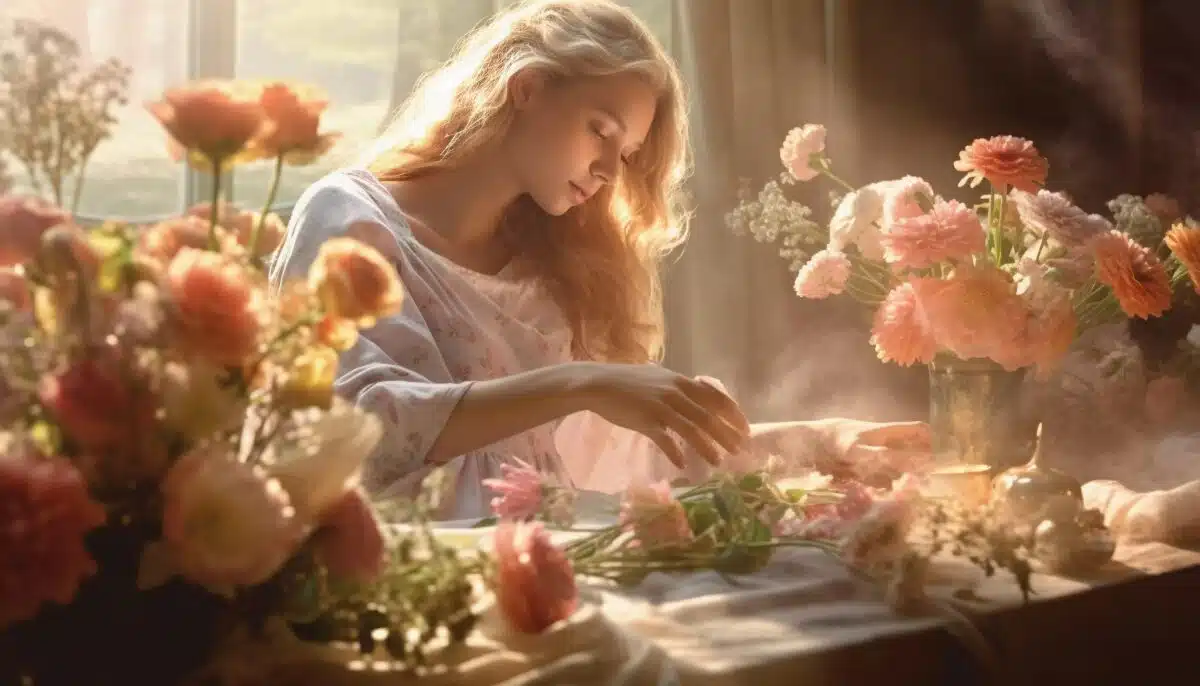
“Waiting” by Emily Dickinson
I sing to use the waiting,
My bonnet but to tie,
And shut the door unto my house;
No more to do have I,
Till, his best step approaching,
We journey to the day,
And tell each other how we sang
To keep the dark away.
“Power” by Emily Dickinson
You cannot put a fire out;
A thing that can ignite
Can go, itself, without a fan
Upon the slowest night.
You cannot fold a flood
And put it in a drawer, —
Because the winds would find it out,
And tell your cedar floor.
“Desire” by Emily Dickinson
Who never wanted, — maddest joy
Remains to him unknown:
The banquet of abstemiousness
Surpasses that of wine.
Within its hope, though yet ungrasped
Desire’s perfect goal,
No nearer, lest reality
Should disenthrall thy soul.
Short Poems About Love by Emily Dickinson
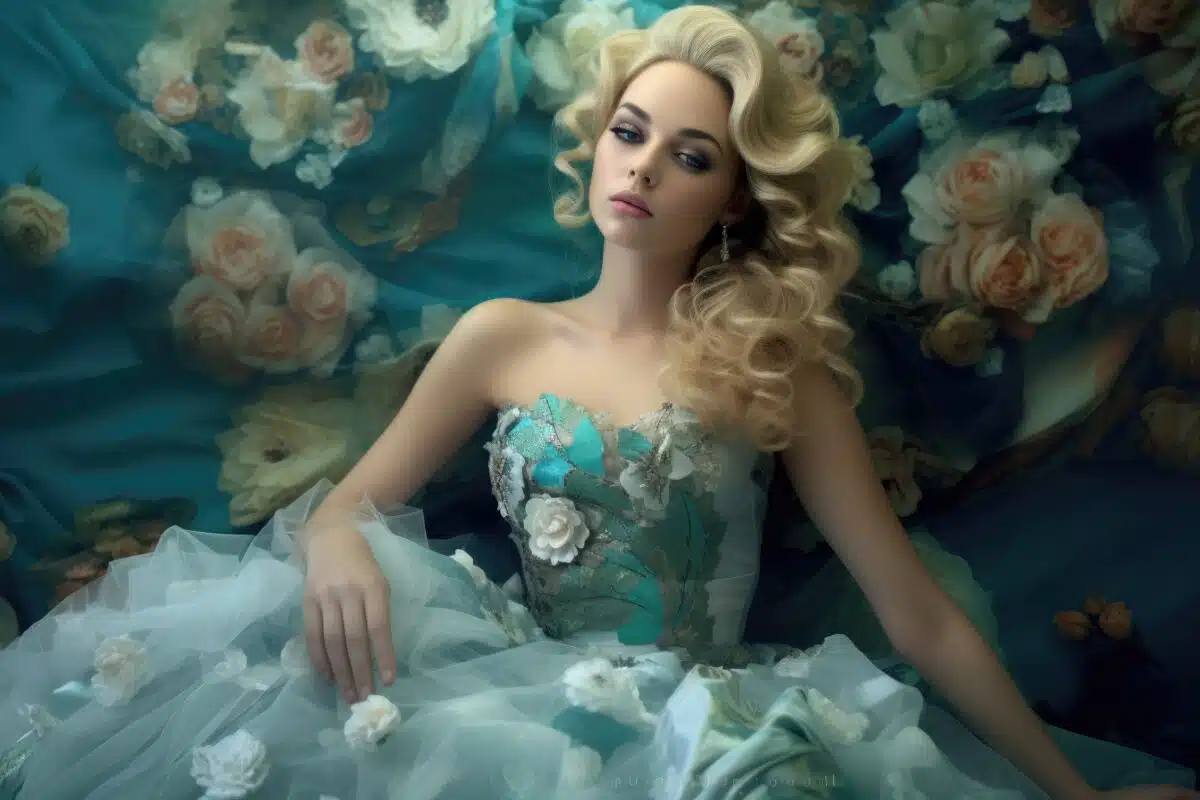
Step into a world where love blooms and emotions dance, as we explore the enchanting love poems of Emily Dickinson.
With her eloquent words and captivating imagery, Dickinson weaves tales of love’s joys and sorrows, inviting us to embark on a poetic journey that stirs the depths of our souls.
“Love” by Emily Dickinson
Love is anterior to life,
Posterior to death,
Initial of creation, and
The exponent of breath.
“I Have No Life But This” by Emily Dickinson
I have no life but this,
To lead it here;
Nor any death, but lest
Dispelled from there;
Nor tie to earths to come,
Nor action new,
Except through this extent,
The realm of you.
“We Outgrow Love Like Other Things” by Emily Dickinson
We outgrow love like other things
And put it in the drawer,
Till it an antique fashion shows
Like costumes grandsires wore.
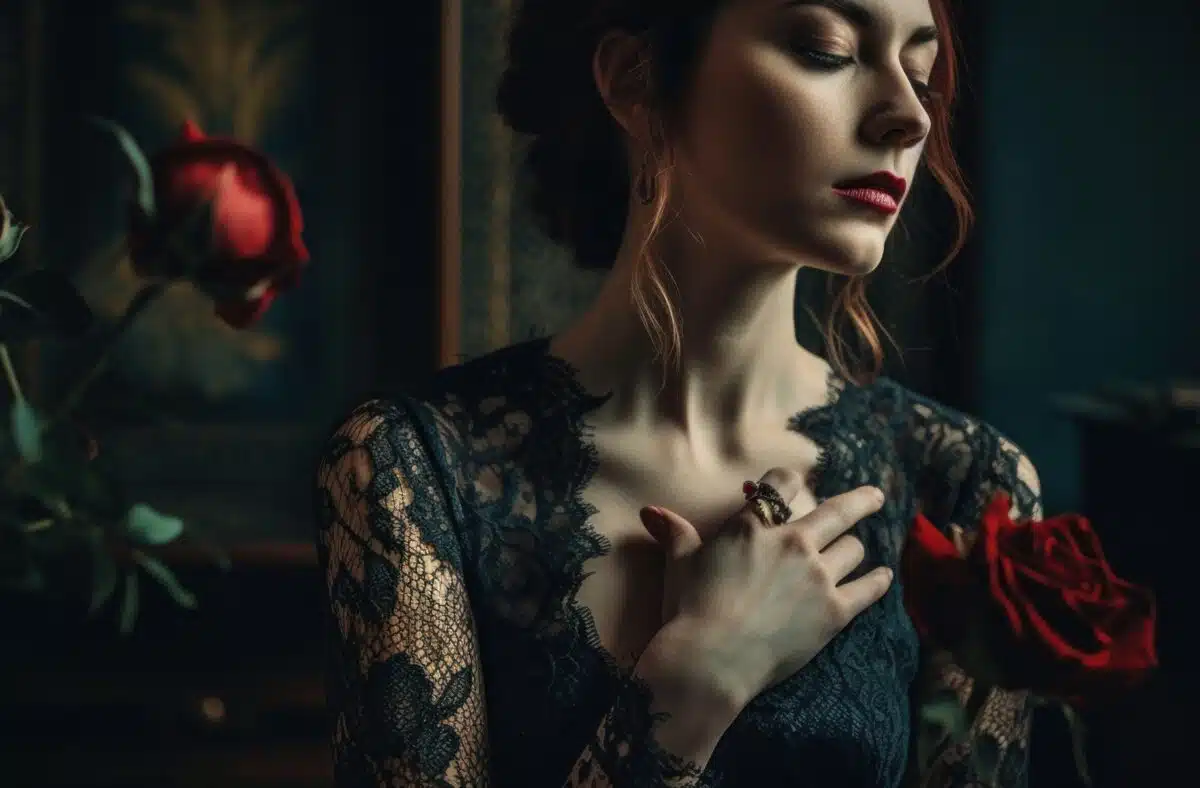
“Proof” by Emily Dickinson
That I did always love,
I bring thee proof:
That till I loved
I did not love enough.
That I shall love alway,
I offer thee
That love is life,
And life hath immortality.
This, dost thou doubt, sweet?
Then have I
Nothing to show
But Calvary.
“Wild Nights! Wild Nights!” by Emily Dickinson
Wild nights! Wild nights!
Were I with thee,
Wild nights should be
Our luxury!
Futile the winds
To a heart in port, —
Done with the compass,
Done with the chart.
Rowing in Eden!
Ah! the sea!
Might I but moor
To-night in thee!
“Bequest” by Emily Dickinson
You left me, sweet, two legacies, —
A legacy of love
A Heavenly Father would content,
Had He the offer of;
You left me boundaries of pain
Capacious as the sea,
Between eternity and time,
Your consciousness and me.
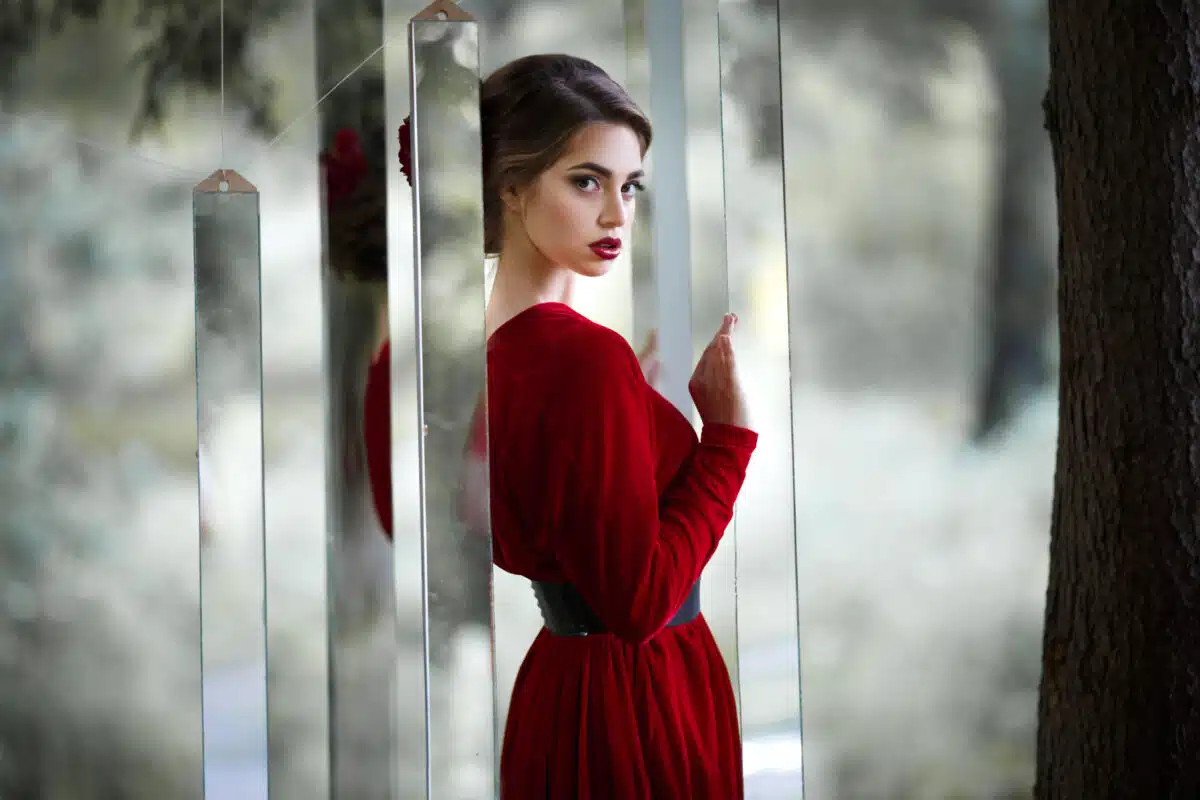
“A Charm Invests a Face” by Emily Dickinson
A charm invests a face
Imperfectly beheld, —
The lady dare not lift her veil
For fear it be dispelled.
But peers beyond her mesh,
And wishes, and denies, —
Lest interview annul a want
That image satisfies.
“Hunger” by Emily Dickinson
I had been hungry all the years;
My noon had come, to dine;
I, trembling, drew the table near,
And touched the curious wine.
‘T was this on tables I had seen,
When turning, hungry, lone,
I looked in windows, for the wealth
I could not hope to own.
I did not know the ample bread,
‘T was so unlike the crumb
The birds and I had often shared
In Nature’s dining-room.
The plenty hurt me, ‘t was so new, —
Myself felt ill and odd,
As berry of a mountain bush
Transplanted to the road.
Nor was I hungry; so I found
That hunger was a way
Of persons outside windows,
The entering takes away.
“The Lovers” by Emily Dickinson
The rose did caper on her cheek,
Her bodice rose and fell,
Her pretty speech, like drunken men,
Did stagger pitiful.
Her fingers fumbled at her work, —
Her needle would not go;
What ailed so smart a little maid
It puzzled me to know,
Till opposite I spied a cheek
That bore another rose;
Just opposite, another speech
That like the drunkard goes;
A vest that, like the bodice, danced
To the immortal tune, —
Till those two troubled little clocks
Ticked softly into one.
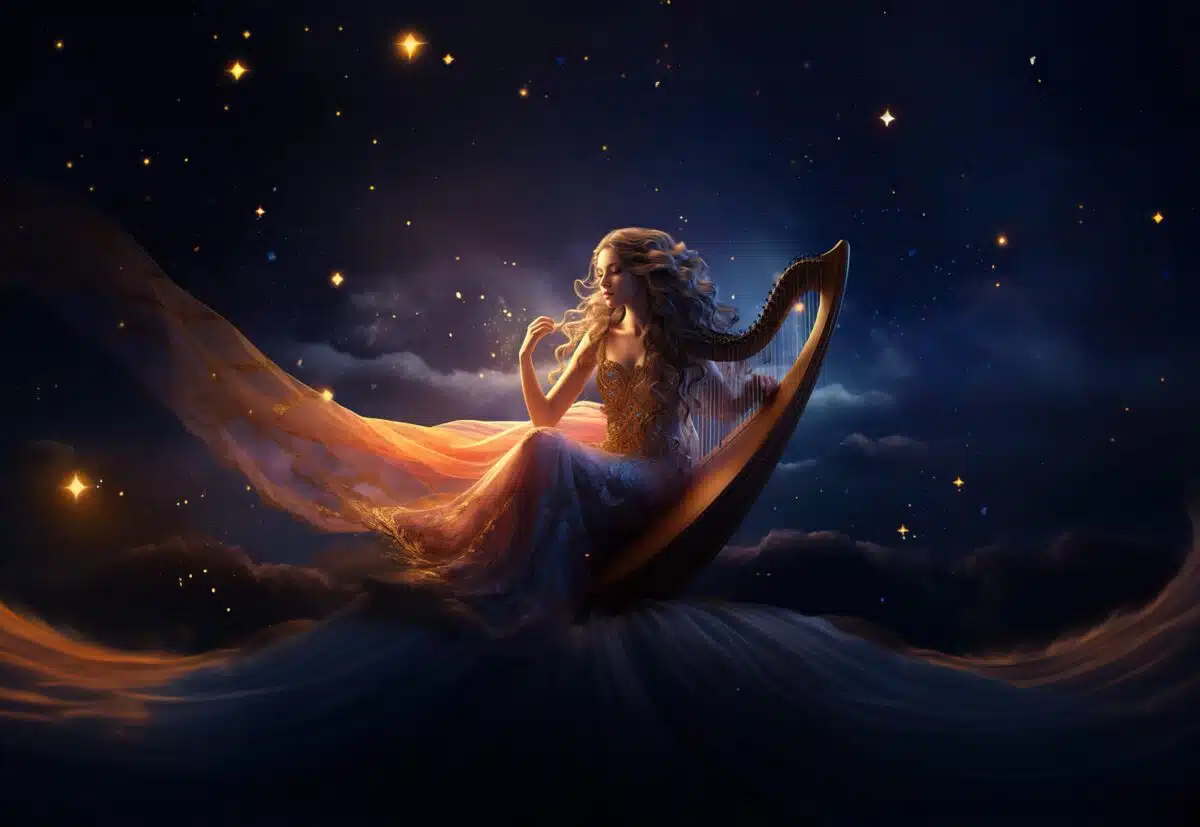
“The Moon Is Distant From the Sea” by Emily Dickinson
The moon is distant from the sea,
And yet with amber hands
She leads him, docile as a boy,
Along appointed sands.
He never misses a degree;
Obedient to her eye,
He comes just so far toward the town,
Just so far goes away.
Oh, Signor, thine the amber hand,
And mine the distant sea, —
Obedient to the least command
Thine eyes impose on me.
“The Daisy Follows Soft the Sun” by Emily Dickinson
The daisy follows soft the sun,
And when his golden walk is done,
Sits shyly at his feet.
He, waking, finds the flower near.
“Wherefore, marauder, art thou here?”
“Because, sir, love is sweet!”
We are the flower, Thou the sun!
Forgive us, if as days decline,
We nearer steal to Thee, —
Enamoured of the parting west,
The peace, the flight, the amethyst,
Night’s possibility!
“The Lost Jewel” by Emily Dickinson
I held a jewel in my fingers
And went to sleep.
The day was warm, and winds were prosy;
I said: “‘T will keep.”
I woke and chid my honest fingers, —
The gem was gone;
And now an amethyst remembrance
Is all I own.
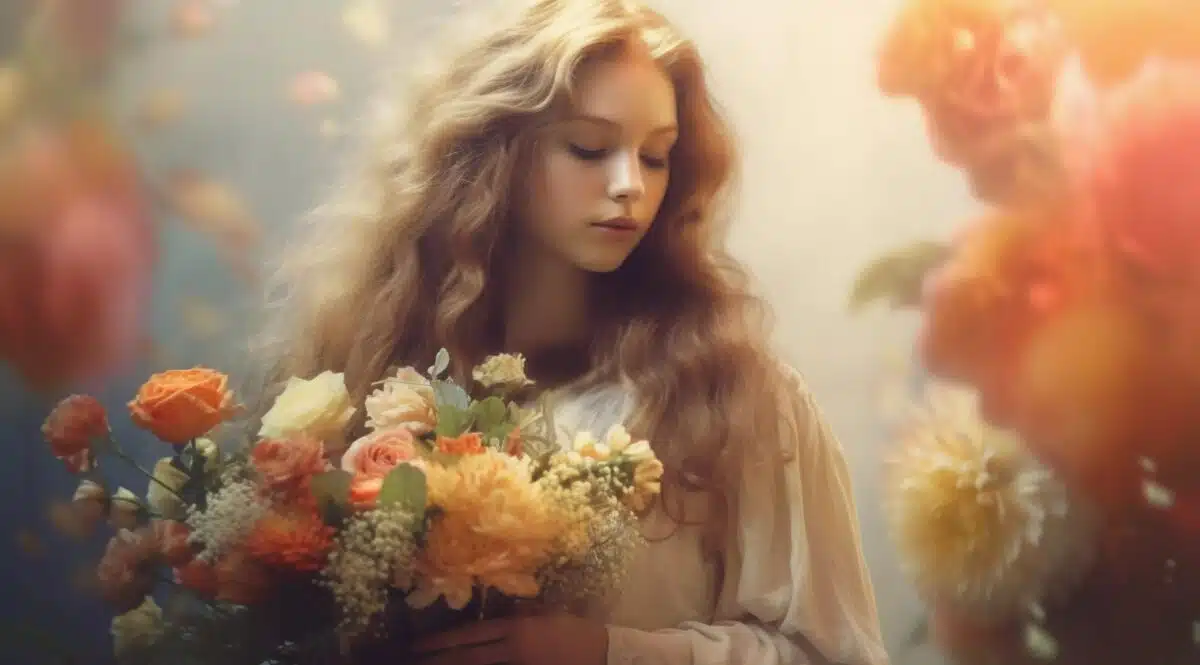
“Heart, We Will Forget Him!” by Emily Dickinson
Heart, we will forget him!
You and I, to-night!
You may forget the warmth he gave,
I will forget the light.
When you have done, pray tell me,
That I my thoughts may dim;
Haste! lest while you’re lagging,
I may remember him!
“Surrender” by Emily Dickinson
Doubt me, my dim companion!
Why, God would be content
With but a fraction of the love
Poured thee without a stint.
The whole of me, forever,
What more the woman can, —
Say quick, that I may dower thee
With last delight I own!
It cannot be my spirit,
For that was thine before;
I ceded all of dust I knew, —
What opulence the more
Had I, a humble maiden,
Whose farthest of degree
Was that she might,
Some distant heaven,
Dwell timidly with thee!
“Apocalypse” by Emily Dickinson
I’m wife; I’ve finished that,
That other state;
I’m Czar, I’m woman now:
It’s safer so.
How odd the girl’s life looks
Behind this soft eclipse!
I think that earth seems so
To those in heaven now.
This being comfort, then
That other kind was pain;
But why compare?
I’m wife! stop there!
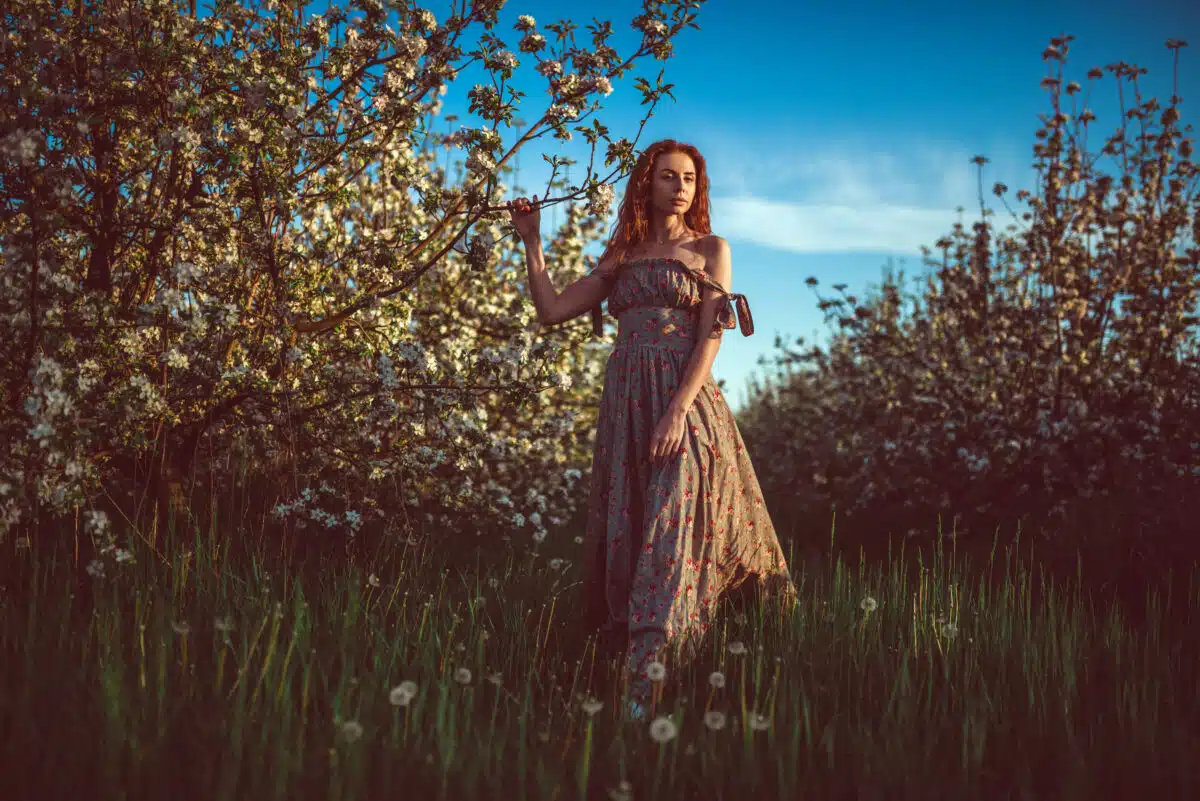
“Consecration” by Emily Dickinson
Proud of my broken heart since thou didst break it,
Proud of the pain I did not feel till thee,
Proud of my night since thou with moons dost slake it,
Not to partake thy passion, my humility.
“Love’s Humility” by Emily Dickinson
My worthiness is all my doubt,
His merit all my fear,
Contrasting which, my qualities
Do lowlier appear;
Lest I should insufficient prove
For his beloved need,
The chiefest apprehension
Within my loving creed.
So I, the undivine abode
Of his elect content,
Conform my soul as ‘t were a church
Unto her sacrament.
“When Roses Cease to Bloom, Dear” by Emily Dickinson
When roses cease to bloom, dear,
And violets are done,
When bumble-bees in solemn flight
Have passed beyond the sun,
The hand that paused to gather
Upon this summer’s day
Will idle lie, in Auburn, —
Then take my flower, pray!
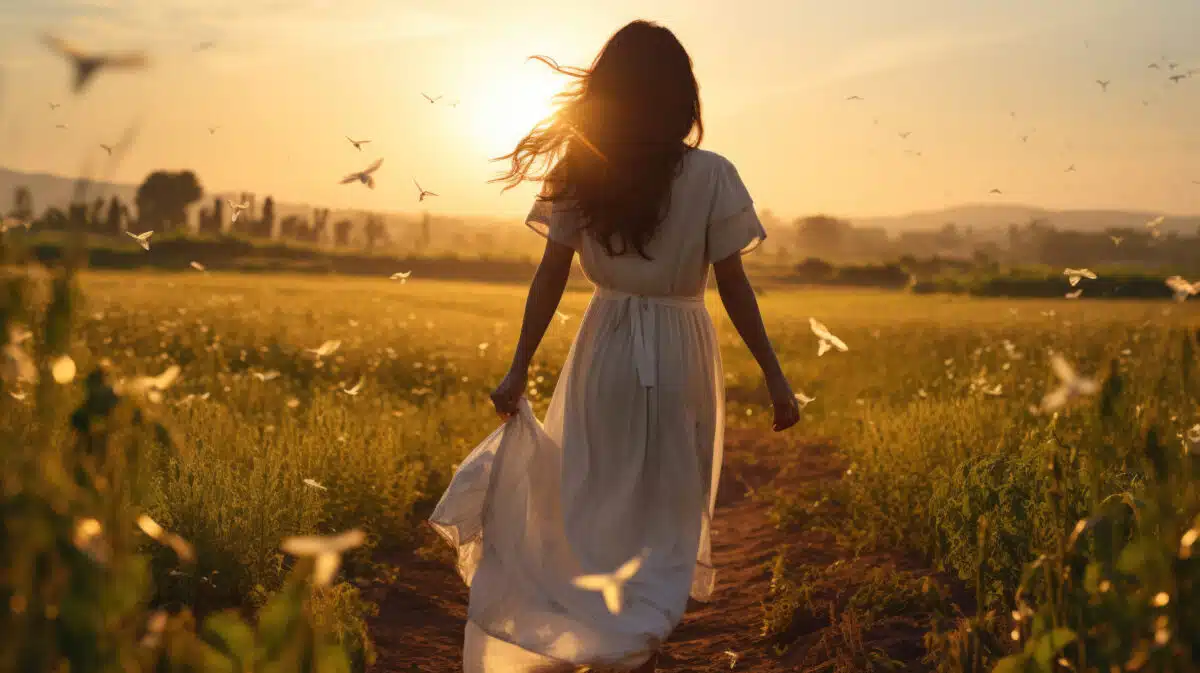
“Song” by Emily Dickinson
Summer for thee grant I may be
When summer days are flown!
Thy music still when whippoorwill
And oriole are done!
For thee to bloom, I’ll skip the tomb
And sow my blossoms o’er!
Pray gather me, Anemone,
Thy flower forevermore!
“The Contract” by Emily Dickinson
I gave myself to him,
And took himself for pay.
The solemn contract of a life
Was ratified this way.
The wealth might disappoint,
Myself a poorer prove
Than this great purchaser suspect,
The daily own of Love
Depreciate the vision;
But, till the merchant buy,
Still fable, in the isles of spice,
The subtle cargoes lie.
At least, ‘t is mutual risk, —
Some found it mutual gain;
Sweet debt of Life, — each night to owe,
Insolvent, every noon.
“I’ve Got An Arrow Here” by Emily Dickinson
I’ve got an arrow here;
Loving the hand that sent it,
I the dart revere.
Fell, they will say, in ‘skirmish’!
Vanquished, my soul will know,
By but a simple arrow
Sped by an archer’s bow.
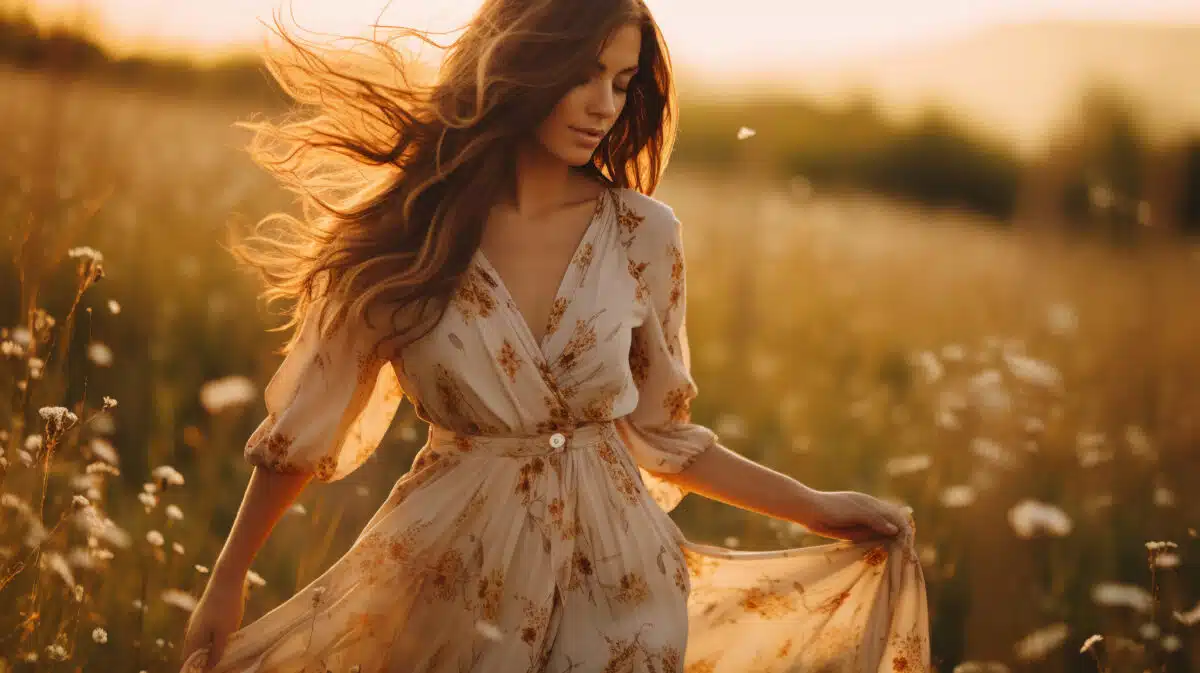
“To Lose Thee, Sweeter Than to Gain” by Emily Dickinson
To lose thee, sweeter than to gain
All other hearts I knew.
‘T is true the drought is destitute,
But then I had the dew!
The Caspian has its realms of sand,
Its other realm of sea;
Without the sterile perquisite
No Caspian could be.
“He Touched Me, So I Live to Know” by Emily Dickinson
He touched me, so I live to know
That such a day, permitted so,
I groped upon his breast.
It was a boundless place to me,
And silenced, as the awful sea
Puts minor streams to rest.
And now, I’m different from before,
As if I breathed superior air,
Or brushed a royal gown;
My feet, too, that had wandered so,
My gypsy face transfigured now
To tenderer renown.
“With Flowers (XXV)” by Emily Dickinson
If recollecting were forgetting,
Then I remember not;
And if forgetting, recollecting,
How near I had forgot!
And if to miss were merry,
And if to mourn were gay,
How very blithe the fingers
That gathered these to-day
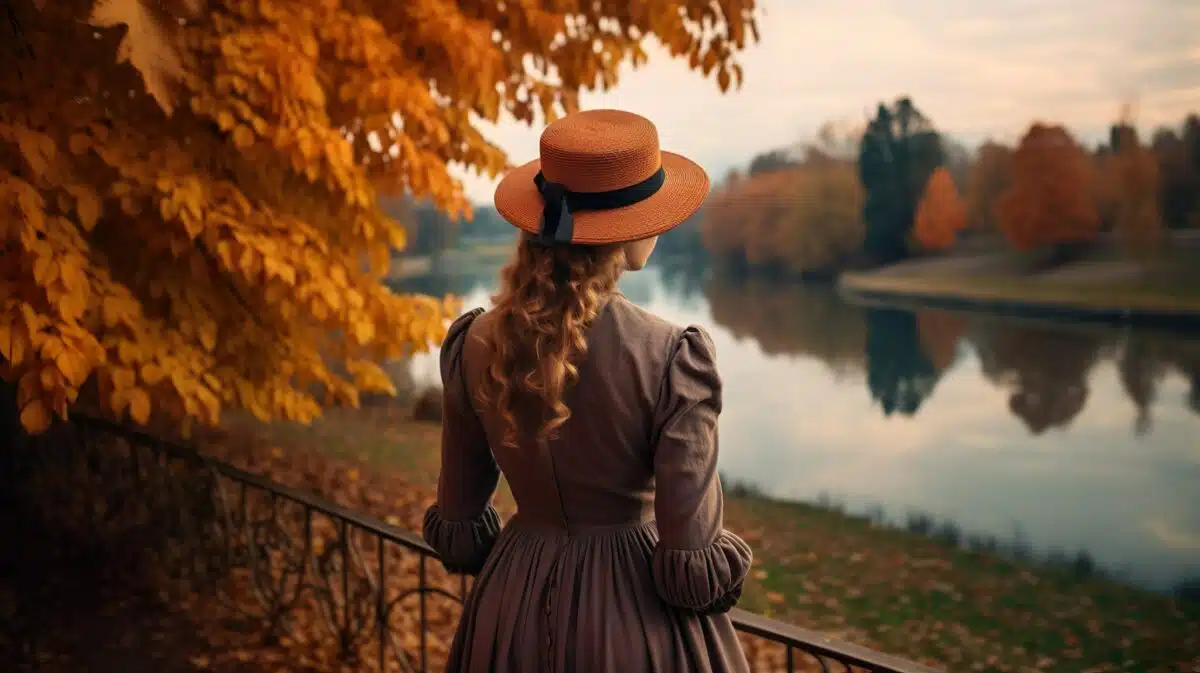
“If You Were Coming In the Fall” by Emily Dickinson
If you were coming in the fall,
I’d brush the summer by
With half a smile and half a spurn,
As housewives do a fly.
If I could see you in a year,
I’d wind the months in balls,
And put them each in separate drawers,
Until their time befalls.
If only centuries delayed,
I’d count them on my hand,
Subtracting till my fingers dropped
Into Van Diemen’s land.
If certain, when this life was out,
That yours and mine should be,
I’d toss it yonder like a rind,
And taste eternity.
But now, all ignorant of the length
Of time’s uncertain wing,
It goads me, like the goblin bee,
That will not state its sting.
“A Book” by Emily Dickinson
There is no frigate like a book
To take us lands away,
Nor any coursers like a page
Of prancing poetry.
This traverse may the poorest take
Without oppress of toll;
How frugal is the chariot
That bears a human soul!
“Longing” by Emily Dickinson
I envy seas whereon he rides,
I envy spokes of wheels
Of chariots that him convey,
I envy speechless hills
That gaze upon his journey;
How easy all can see
What is forbidden utterly
As heaven, unto me!
I envy nests of sparrows
That dot his distant eaves,
The wealthy fly upon his pane,
The happy, happy leaves
That just abroad his window
Have summer’s leave to be,
The earrings of Pizarro
Could not obtain for me.
I envy light that wakes him,
And bells that boldly ring
To tell him it is noon abroad, —
Myself his noon could bring,
Yet interdict my blossom
And abrogate my bee,
Lest noon in everlasting night
Drop Gabriel and me.
Famous Poems on Death by Emily Dickinson
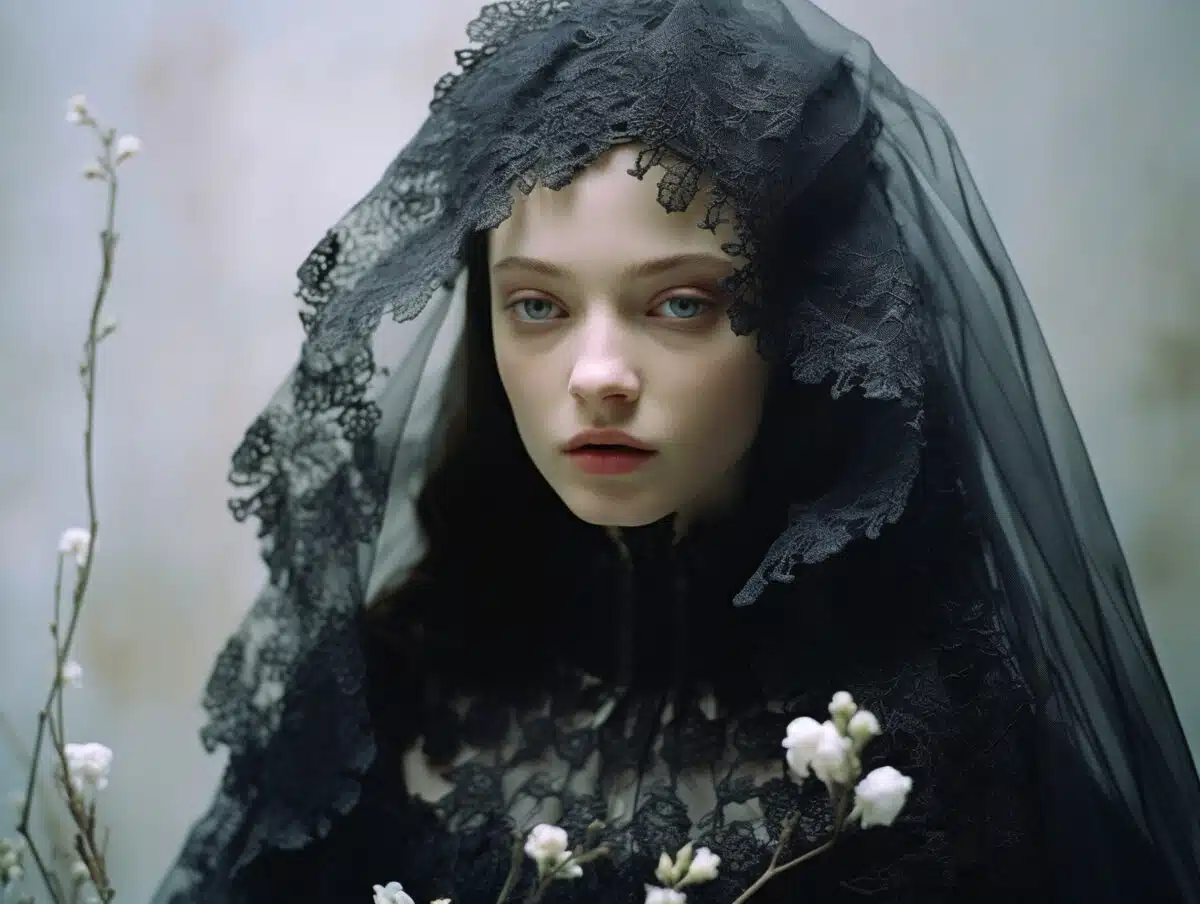
Get ready to enter a world where the boundaries between life and death blur, and where the mesmerizing words of Emily Dickinson intrigue our imagination and offer solace to our emotions.
Through her verses, Dickinson skillfully navigates the delicate balance between darkness and light, encouraging us to ponder the enigmatic nature of existence.
“Vanished” by Emily Dickinson
She died, — this was the way she died;
And when her breath was done,
Took up her simple wardrobe
And started for the sun.
Her little figure at the gate
The angels must have spied,
Since I could never find her
Upon the mortal side.
“The Bustle In a House” by Emily Dickinson
The bustle in a house
The morning after death
Is solemnest of industries
Enacted upon earth, —
The sweeping up the heart,
And putting love away
We shall not want to use again
Until eternity.
“What If I Say I Shall Not Wait” by Emily Dickinson
What if I say I shall not wait?
What if I burst the fleshly gate
And pass, escaped, to thee?
What if I file this mortal off,
See where it hurt me, — that ‘s enough, —
And wade in liberty?
They cannot take us any more, —
Dungeons may call, and guns implore;
Unmeaning now, to me,
As laughter was an hour ago,
Or laces, or a travelling show,
Or who died yesterday!
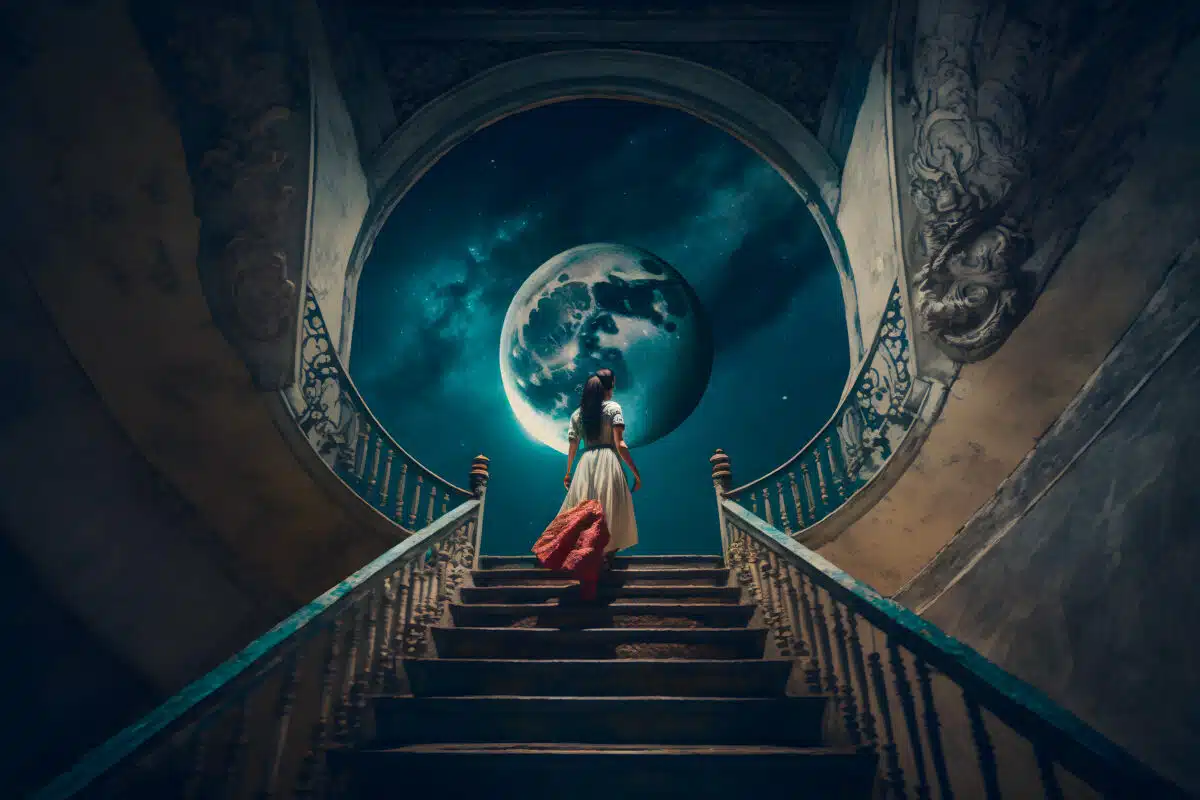
“The Chariot” by Emily Dickinson
Because I could not stop for Death,
He kindly stopped for me;
The carriage held but just ourselves
And Immortality.
We slowly drove, he knew no haste,
And I had put away
My labor, and my leisure too,
For his civility.
We passed the school where children played,
Their lessons scarcely done;
We passed the fields of gazing grain,
We passed the setting sun.
We paused before a house that seemed
A swelling of the ground;
The roof was scarcely visible,
The cornice but a mound.
Since then ‘t is centuries; but each
Feels shorter than the day
I first surmised the horses’ heads
Were toward eternity.
“We Cover Thee, Sweet Face” by Emily Dickinson
We cover thee, sweet face.
Not that we tire of thee,
But that thyself fatigue of us;
Remember, as thou flee,
We follow thee until
Thou notice us no more,
And then, reluctant, turn away
To con thee o’er and o’er,
And blame the scanty love
We were content to show,
Augmented, sweet, a hundred fold
If thou would’st take it now.
“The Forgotten Grave” by Emily Dickinson
After a hundred years
Nobody knows the place, —
Agony, that enacted there,
Motionless as peace.
Weeds triumphant ranged,
Strangers strolled and spelled
At the lone orthography
Of the elder dead.
Winds of summer fields
Recollect the way, —
Instinct picking up the key
Dropped by memory.
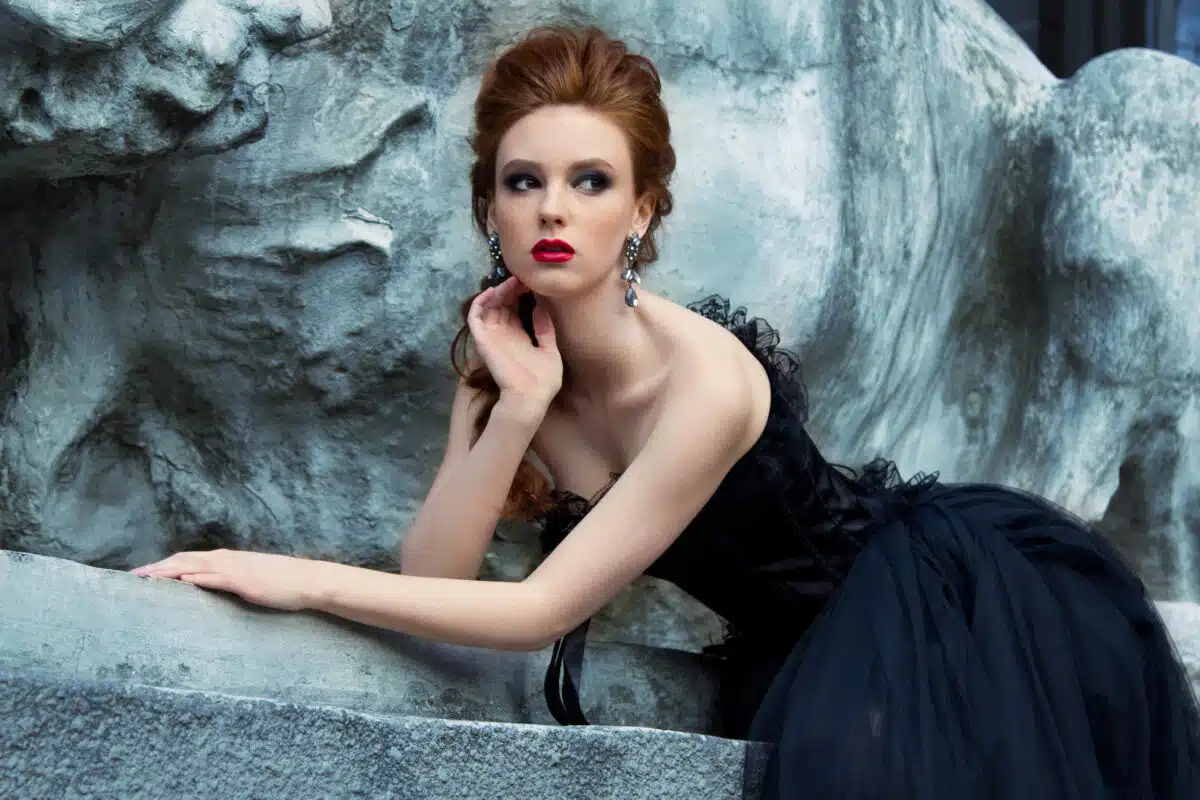
“As by the Dead We Love to Sit” by Emily Dickinson
As by the dead we love to sit,
Become so wondrous dear,
As for the lost we grapple,
Though all the rest are here, —
In broken mathematics
We estimate our prize,
Vast, in its fading ratio,
To our penurious eyes!
“Memorials” by Emily Dickinson
Death sets a thing significant
The eye had hurried by,
Except a perished creature
Entreat us tenderly
To ponder little workmanships
In crayon or in wool,
With “This was last her fingers did,”
Industrious until
The thimble weighed too heavy,
The stitches stopped themselves,
And then ‘t was put among the dust
Upon the closet shelves.
A book I have, a friend gave,
Whose pencil, here and there,
Had notched the place that pleased him, —
At rest his fingers are.
Now, when I read, I read not,
For interrupting tears
Obliterate the etchings
Too costly for repairs.
“A Wounded Deer Leaps the Highest” by Emily Dickinson
A wounded deer leaps highest,
I’ve heard the hunter tell;
‘T is but the ecstasy of death,
And then the brake is still.
The smitten rock that gushes,
The trampled steel that springs;
A cheek is always redder
Just where the hectic stings!
Mirth is the mail of anguish,
In which it cautions arm,
Lest anybody spy the blood
And “You’re hurt” exclaim!
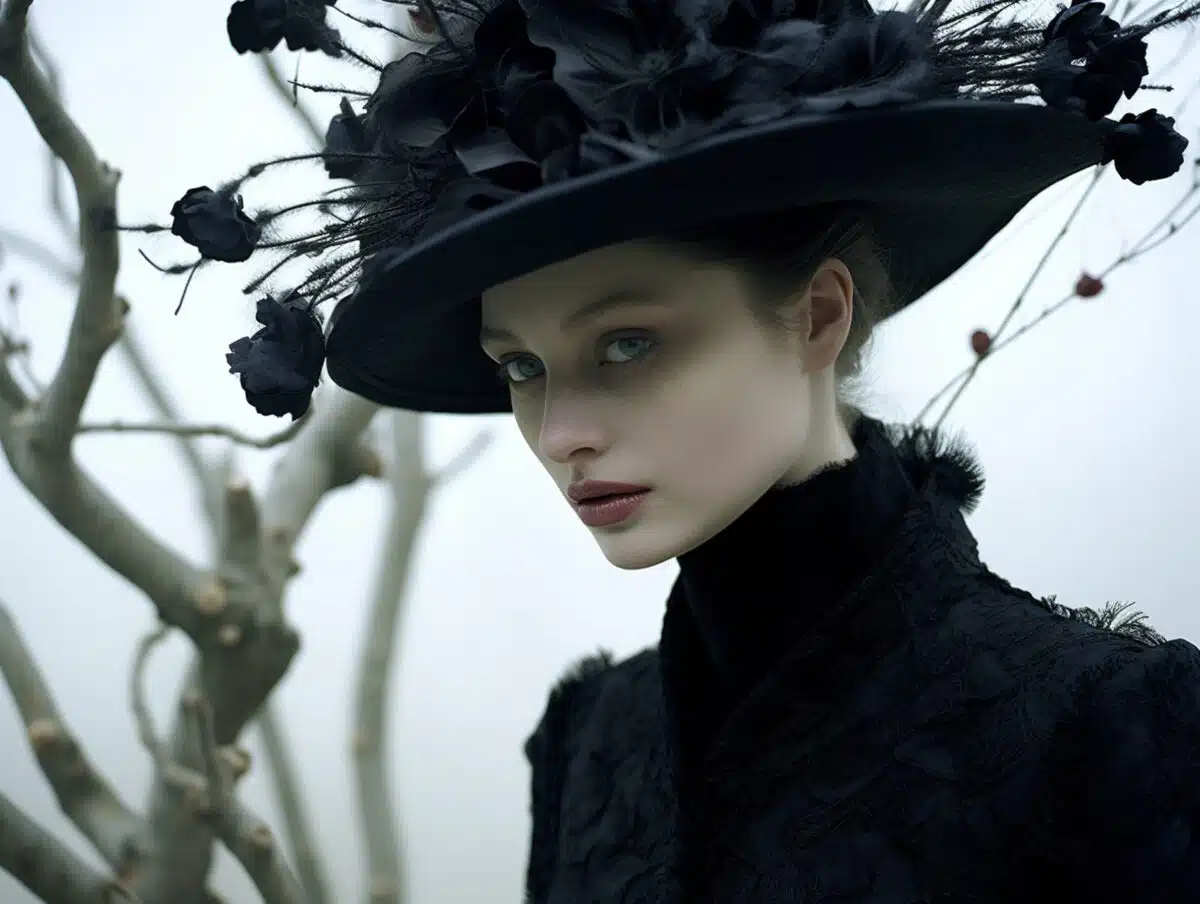
“The Funeral” by Emily Dickinson
That short, potential stir
That each can make but once,
That bustle so illustrious
‘T is almost consequence,
Is the eclat of death.
Oh, thou unknown renown
That not a beggar would accept,
Had he the power to spurn!
“Death and Life” by Emily Dickinson
Apparently with no surprise
To any happy flower,
The frost beheads it at its play
In accidental power.
The blond assassin passes on,
The sun proceeds unmoved
To measure off another day
For an approving God.
“Too Late” by Emily Dickinson
Delayed till she had ceased to know,
Delayed till in its vest of snow
Her loving bosom lay.
An hour behind the fleeting breath,
Later by just an hour than death, —
Oh, lagging yesterday!
Could she have guessed that it would be;
Could but a crier of the glee
Have climbed the distant hill;
Had not the bliss so slow a pace, —
Who knows but this surrendered face
Were undefeated still?
Oh, if there may departing be
Any forgot by victory
In her imperial round,
Show them this meek apparelled thing,
That could not stop to be a king,
Doubtful if it be crowned!
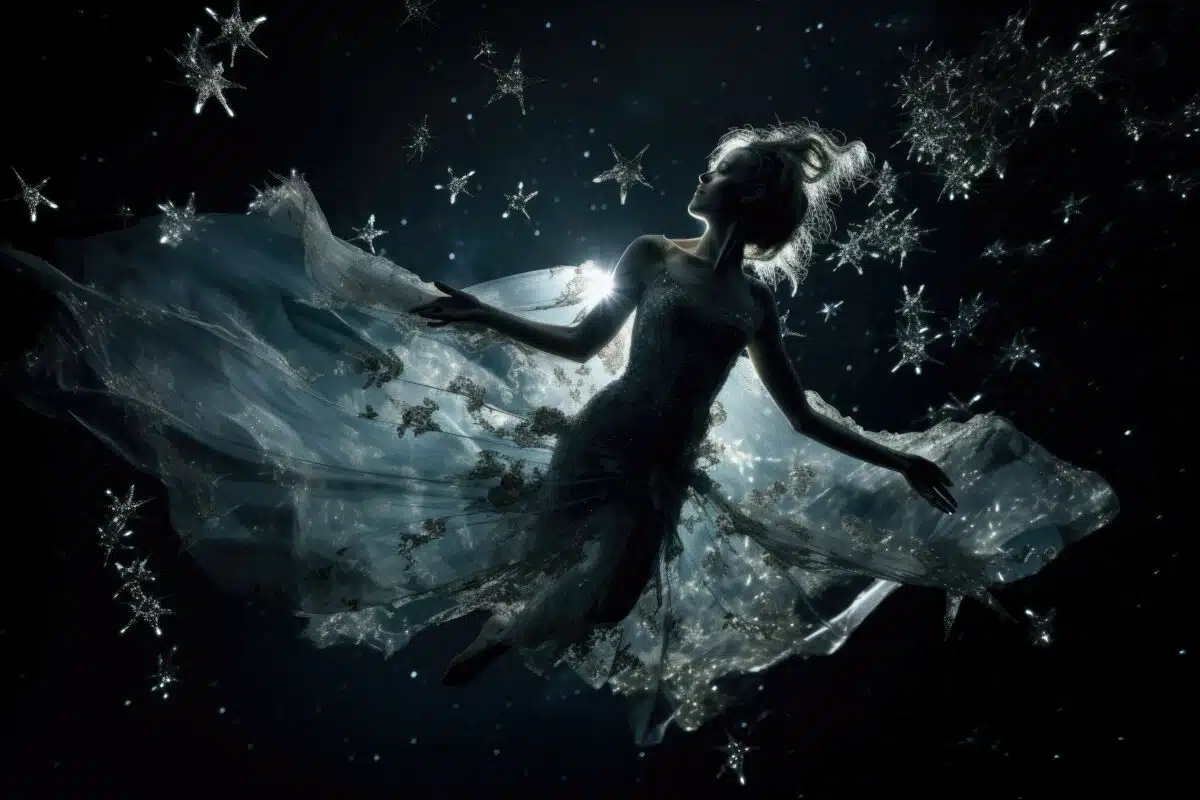
“Death Is a Dialogue” by Emily Dickinson
Death is a dialogue between
The spirit and the dust.
“Dissolve,” says Death. The Spirit, “Sir,
I have another trust.”
Death doubts it, argues from the ground.
The Spirit turns away,
Just laying off, for evidence,
An overcoat of clay.
“Dying” by Emily Dickinson
I heard a fly buzz when I died;
The stillness round my form
Was like the stillness in the air
Between the heaves of storm.
The eyes beside had wrung them dry,
And breaths were gathering sure
For that last onset, when the king
Be witnessed in his power.
I willed my keepsakes, signed away
What portion of me I
Could make assignable, — and then
There interposed a fly,
With blue, uncertain, stumbling buzz,
Between the light and me;
And then the windows failed, and then
I could not see to see.
“Let Down the Bars, O Death!” by Emily Dickinson
Let down the bars, O Death!
The tired flocks come in
Whose bleating ceases to repeat,
Whose wandering is done.
Thine is the stillest night,
Thine the securest fold;
Too near thou art for seeking thee,
Too tender to be told.
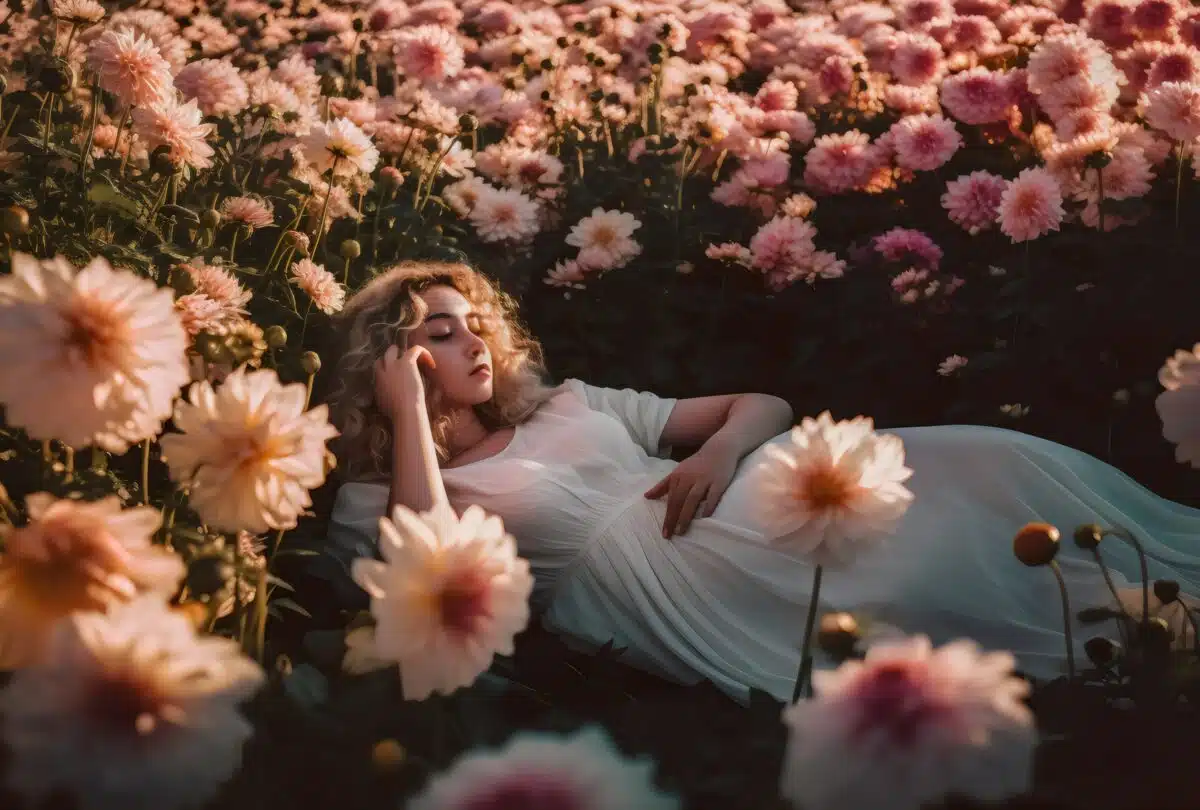
“A Death-Blow Is a Life-Blow to Some” by Emily Dickinson
A death-blow is a life-blow to some
Who, till they died, did not alive become;
Who, had they lived, had died, but when
They died, vitality begun.
“I Have Not Told My Garden Yet” by Emily Dickinson
I have not told my garden yet,
Lest that should conquer me;
I have not quite the strength now
To break it to the bee.
I will not name it in the street,
For shops would stare, that I,
So shy, so very ignorant,
Should have the face to die.
The hillsides must not know it,
Where I have rambled so,
Nor tell the loving forests
The day that I shall go,
Nor lisp it at the table,
Nor heedless by the way
Hint that within the riddle
One will walk to-day!
“I Went to Heaven” by Emily Dickinson
I went to heaven, —
‘T was a small town,
Lit with a ruby,
Lathed with down.
Stiller than the fields
At the full dew,
Beautiful as pictures
No man drew.
People like the moth,
Of mechlin, frames,
Duties of gossamer,
And eider names.
Almost contented
I could be
‘Mong such unique
Society.
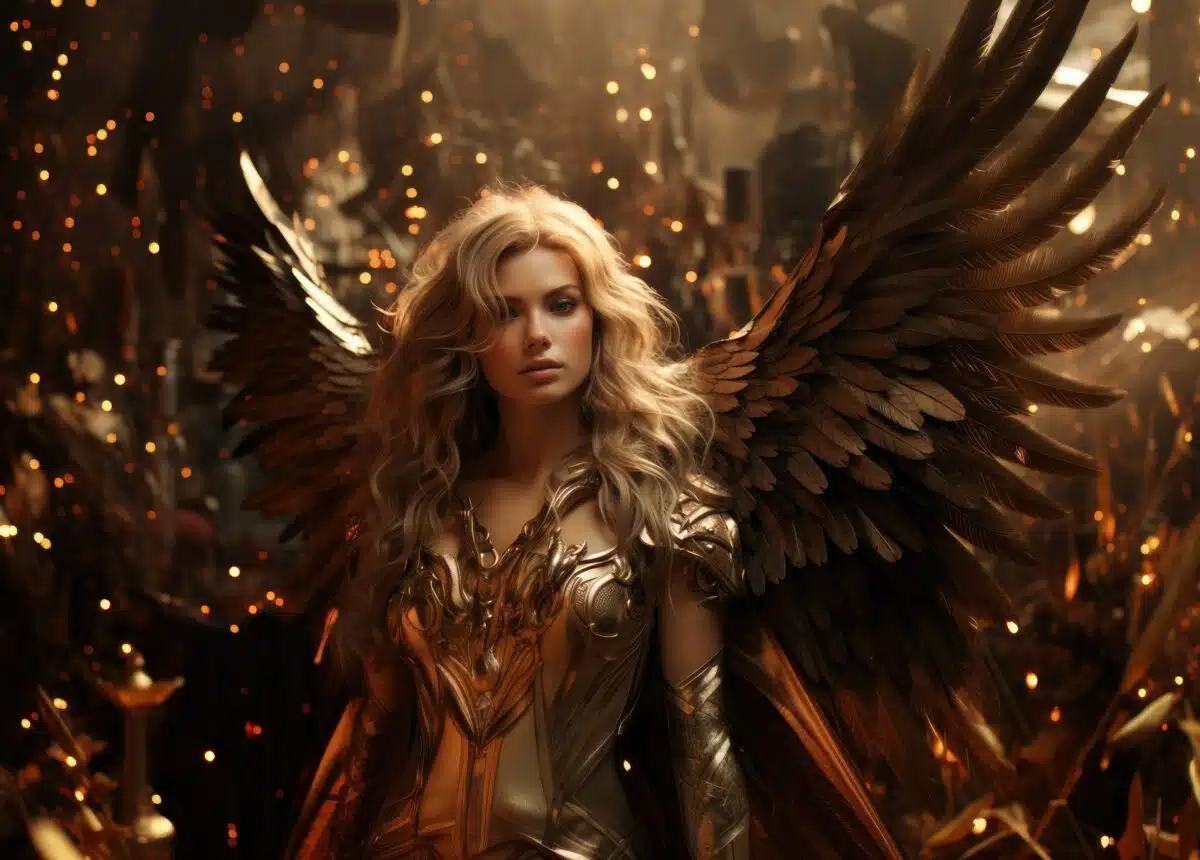
“The Battle-Field” by Emily Dickinson
They dropped like flakes, they dropped like stars,
Like petals from a rose,
When suddenly across the June
A wind with fingers goes.
They perished in the seamless grass, —
No eye could find the place;
But God on his repealless list
Can summon every face.
“At Length” by Emily Dickinson
Her final summer was it,
And yet we guessed it not;
If tenderer industriousness
Pervaded her, we thought
A further force of life
Developed from within, —
When Death lit all the shortness up,
And made the hurry plain.
We wondered at our blindness, —
When nothing was to see
But her Carrara guide-post, —
At our stupidity,
When, duller than our dullness,
The busy darling lay,
So busy was she, finishing,
So leisurely were we!
“Precedence” by Emily Dickinson
Wait till the majesty of Death
Invests so mean a brow!
Almost a powdered footman
Might dare to touch it now!
Wait till in everlasting robes
This democrat is dressed,
Then prate about “preferment”
And “station” and the rest!
Around this quiet courtier
Obsequious angels wait!
Full royal is his retinue,
Full purple is his state!
A lord might dare to lift the hat
To such a modest clay,
Since that my Lord, “the Lord of lords”
Receives unblushingly!
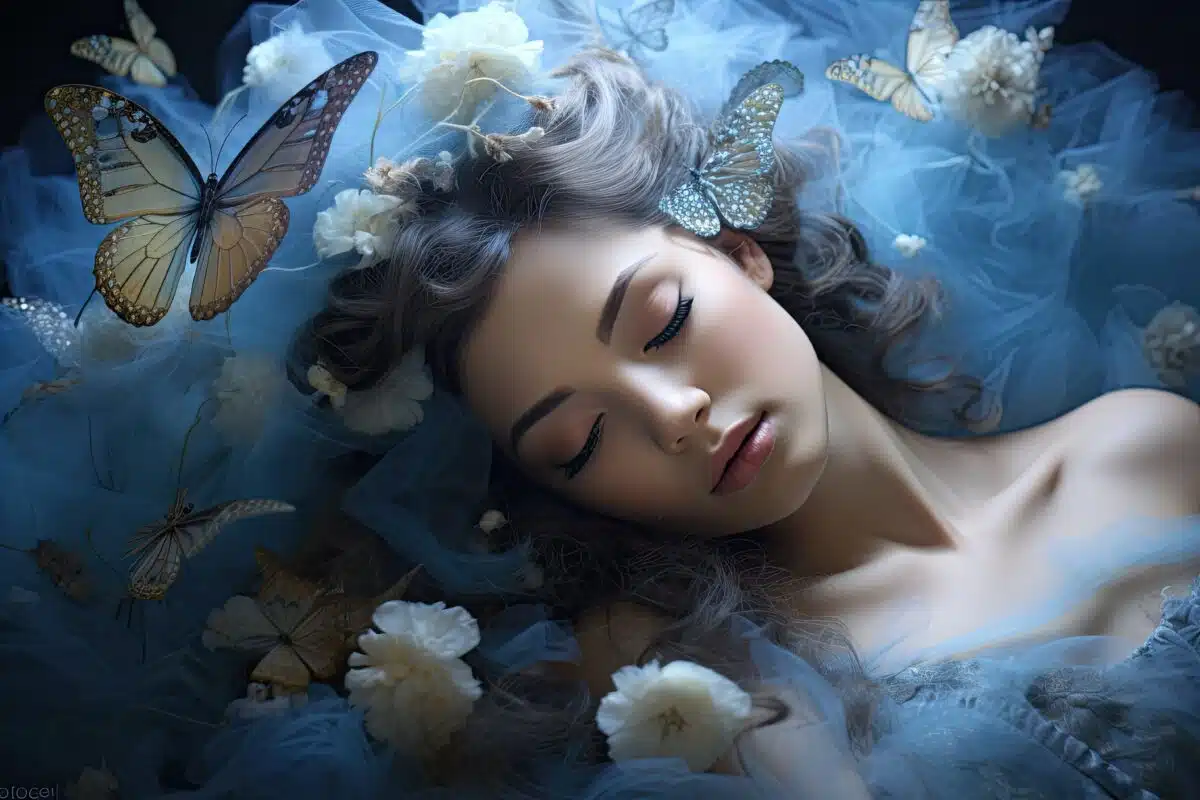
“A Throe Upon the Features” by Emily Dickinson
A throe upon the features
A hurry in the breath,
An ecstasy of parting
Denominated “Death,” —
An anguish at the mention,
Which, when to patience grown,
I ‘ve known permission given
To rejoin its own.
“Life, and Death, and Giants” by Emily Dickinson
Life, and Death, and Giants
Such as these, are still.
Minor apparatus, hopper of the mill,
Beetle at the candle,
Or a fife’s small fame,
Maintain by accident
That they proclaim.
“How Dare the Robins Sing” by Emily Dickinson
How dare the robins sing,
When men and women hear
Who since they went to their account
Have settled with the year! —
Paid all that life had earned
In one consummate bill,
And now, what life or death can do
Is immaterial.
Insulting is the sun
To him whose mortal light,
Beguiled of immortality,
Bequeaths him to the night.
In deference to him
Extinct be every hum,
Whose garden wrestles with the dew,
At daybreak overcome!
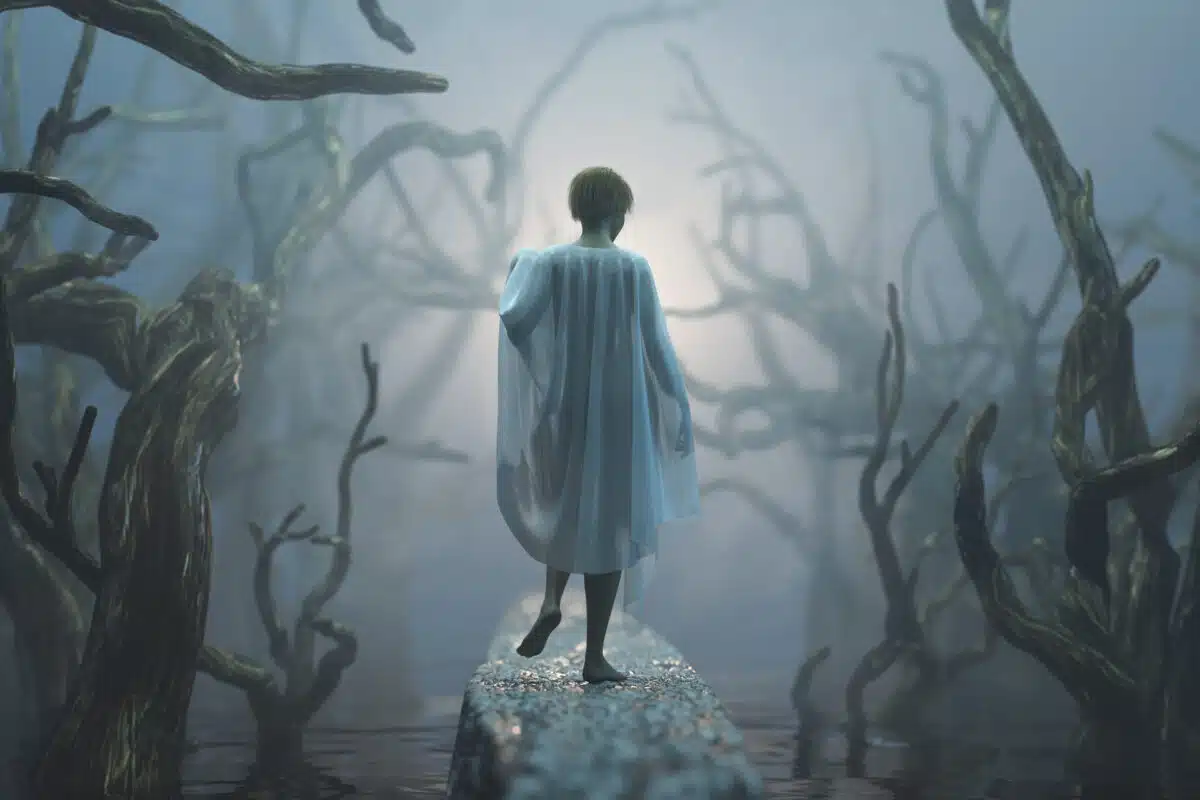
“Death” by Emily Dickinson
Death is like the insect
Menacing the tree,
Competent to kill it,
But decoyed may be.
Bait it with the balsam,
Seek it with the knife,
Baffle, if it cost you
Everything in life.
Then, if it have burrowed
Out of reach of skill,
Ring the tree and leave it, —
‘T is the vermin’s will.
“I Meant to Find Her When I Came” by Emily Dickinson
I meant to find her when I came;
Death had the same design;
But the success was his, it seems,
And the discomfit mine.
I meant to tell her how I longed
For just this single time;
But Death had told her so the first,
And she had hearkened him.
To wander now is my abode;
To rest, — to rest would be
A privilege of hurricane
To memory and me.
“Joy In Death” by Emily Dickinson
If tolling bell I ask the cause.
‘A soul has gone to God,’
I’m answered in a lonesome tone;
Is heaven then so sad?
That bells should joyful ring to tell
A soul had gone to heaven,
Would seem to me the proper way
A good news should be given.
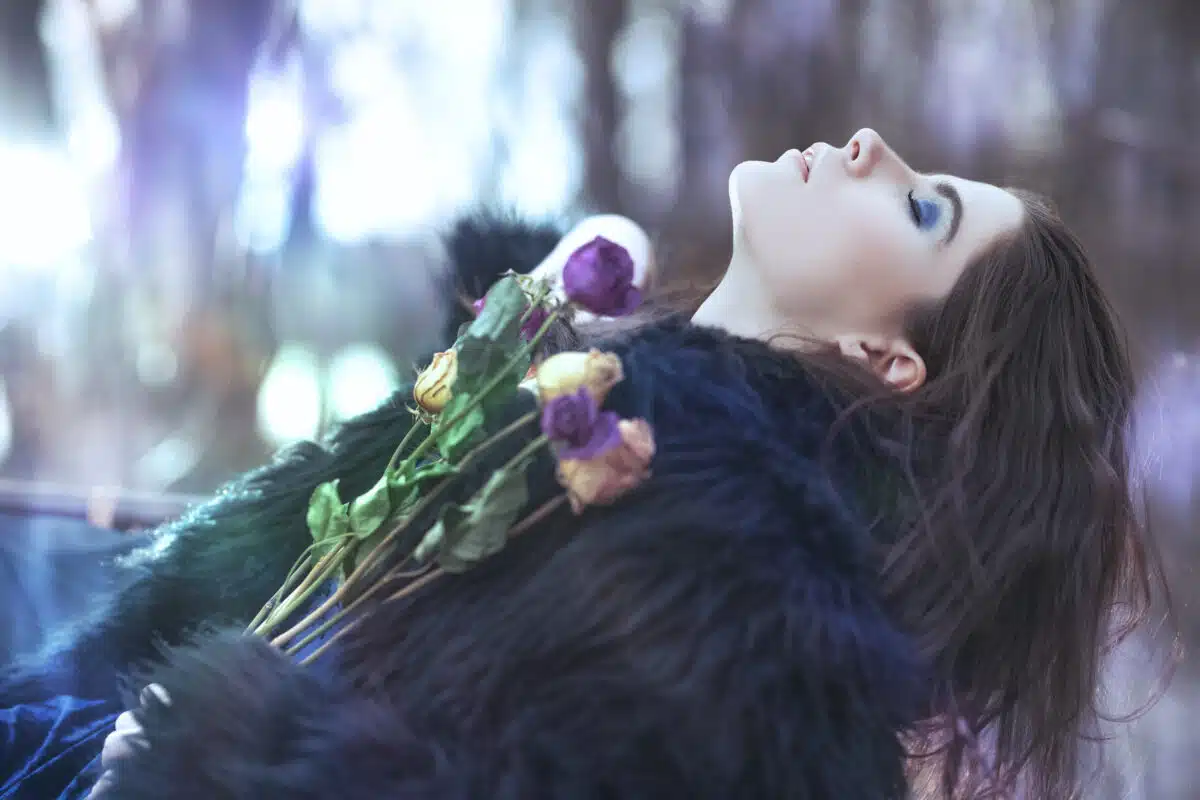
“If I May Have It When It’s Dead” by Emily Dickinson
If I may have it when it’s dead
I will contented be;
If just as soon as breath is out
It shall belong to me,
Until they lock it in the grave,
‘T is bliss I cannot weigh,
For though they lock thee in the grave,
Myself can hold the key.
Think of it, lover! I and thee
Permitted face to face to be;
After a life, a death we’ll say, —
For death was that, and this is thee.
“A Toad Can Die of Light!” by Emily Dickinson
A toad can die of light!
Death is the common right
Of toads and men, —
Of earl and midge
The privilege.
Why swagger then?
The gnat’s supremacy
Is large as thine.
“If I Should Die” by Emily Dickinson
If I should die,
And you should live,
And time should gurgle on,
And morn should beam,
And noon should burn,
As it has usual done;
If birds should build as early,
And bees as bustling go, —
One might depart at option
From enterprise below!
‘T is sweet to know that stocks will stand
When we with daisies lie,
That commerce will continue,
And trades as briskly fly.
It makes the parting tranquil
And keeps the soul serene,
That gentlemen so sprightly
Conduct the pleasing scene!
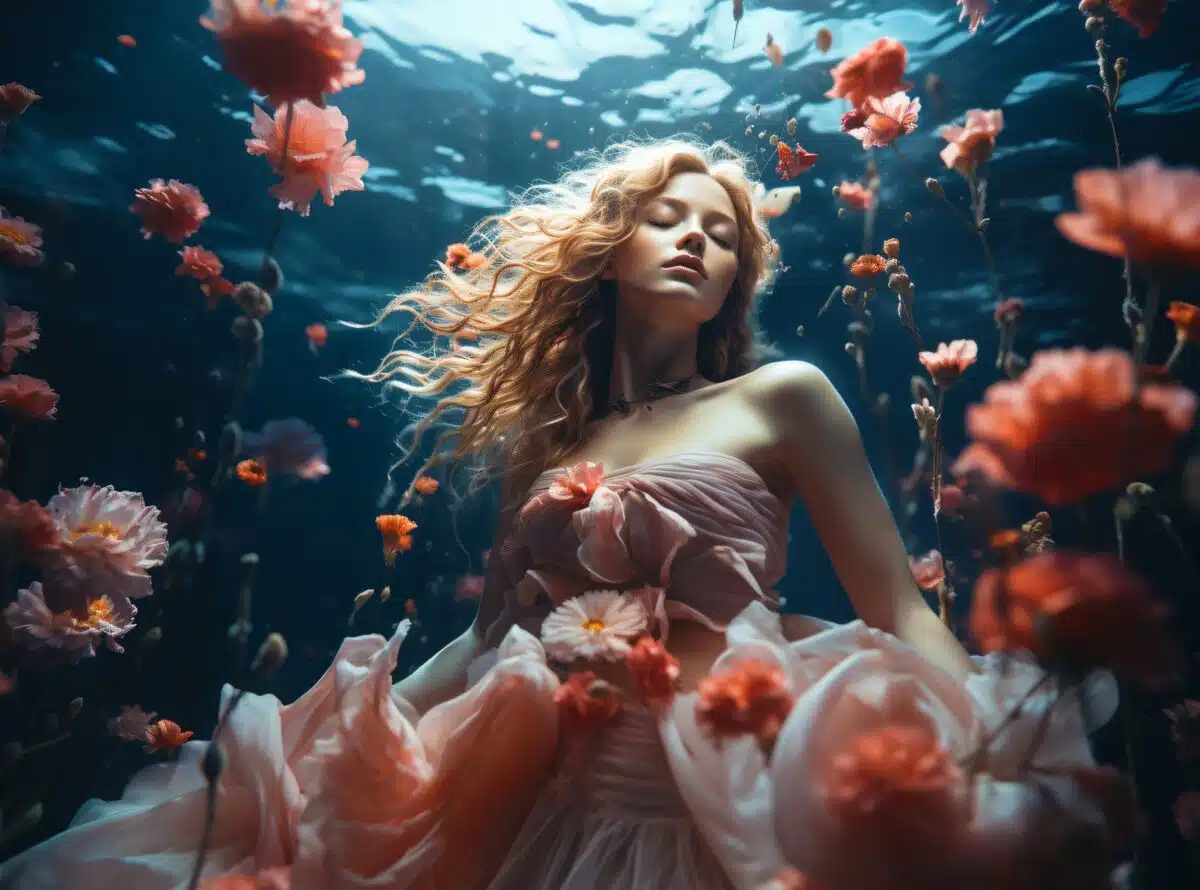
“Ending” by Emily Dickinson
That is solemn we have ended, —
Be it but a play,
Or a glee among the garrets,
Or a holiday,
Or a leaving home; or later,
Parting with a world
We have understood, for better
Still it be unfurled.
“Dead” by Emily Dickinson
There’s something quieter than sleep
Within this inner room!
It wears a sprig upon its breast,
And will not tell its name.
Some touch it and some kiss it,
Some chafe its idle hand;
It has a simple gravity
I do not understand!
While simple-hearted neighbors
Chat of the ‘early dead,’
We, prone to periphrasis,
Remark that birds have fled!
“The Last Night That She Lived” by Emily Dickinson
The last night that she lived,
It was a common night,
Except the dying; this to us
Made nature different.
We noticed smallest things, —
Things overlooked before,
By this great light upon our minds
Italicized, as ‘t were.
That others could exist
While she must finish quite,
A jealousy for her arose
So nearly infinite.
We waited while she passed;
It was a narrow time,
Too jostled were our souls to speak,
At length the notice came.
She mentioned, and forgot;
Then lightly as a reed
Bent to the water, shivered scarce,
Consented, and was dead.
And we, we placed the hair,
And drew the head erect;
And then an awful leisure was,
Our faith to regulate.
